Event Summary
Merseyside Development Update | Photos and Summary
The focus for Liverpool City Region is the future – that was the overwhelming message at Place North West’s latest event, where developers and local authorities gathered to discuss the state of the region’s market and how to position it for success.
Featuring opening remarks from Liverpool City Region Mayor Steve Rotheram, Merseyside Development Update provided its audience with a robust morning of analysis about how the area will be tackling current and future supply needs.
The event was sponsored by Tritax Symmetry, ClearFibre, Peel L&P, Fairhursts Design Group, Pegasus Group, and Curtins. It was held on 10 November at The Spine in Liverpool’s Paddington Village.
Place senior reporter Dan Whelan chaired the conference.
Scroll down to see photos and slides from the event.
The future of Liverpool
Metro Mayor Steve Rotheram set the tone for the day by advocating for true levelling up for the Liverpool City Region and discussing the ways the area may achieve it even without central government help.
Rotheram stated that former Prime Minister Boris Johnson’s “Levelling Up” slogan had been just words.
“It was always about rhetoric,” Rotheram told the audience. “It was never about actuality. It was never about real things.”
If real levelling up had been the goal, Rotheram countered, the fix was easy: “Give us connectivity across the North”.
Another way to achieve it would be for central government to give more funding to local authorities to manage their own projects.
“We can do things better because we’re more nimble, we’re more focused,” Rotheram said. “We don’t need a monolith-like government deciding what happens here. They wouldn’t know the difference between Kirkby and West Kirby. How can they know what’s best for us?”
Rotheram went on to describe the Liverpool City Region of the future. He noted the city of Liverpool’s improvement over the past few years.
“There is huge progress that’s been made, I think, due to the leadership of [Mayor] Joanne Anderson and the way the council is trying to focus on delivery,” he said. “You see that progress.”
Looking more broadly, he said that the region is focused on getting the infrastructure in place to enable growth. This means having ultrafast digital connectivity to improve the region’s appeal for tech companies. He noted that construction has begun on a £30m supercomputer centre at Sci-Tech Daresbury and that the area is already becoming known for its artificial intelligence work.
Down the line, he hopes a tidal energy project will come to fruition, which will help place Liverpool City Region as one of the world’s leaders in green energy.
“All of the world’s big companies say they need ultrafast speeds. They need a green form of energy. Well, we’ll have an abundance of green energy,” Rotheram said.
“Think about where that takes us. That is the strategic future of Liverpool City Region.”
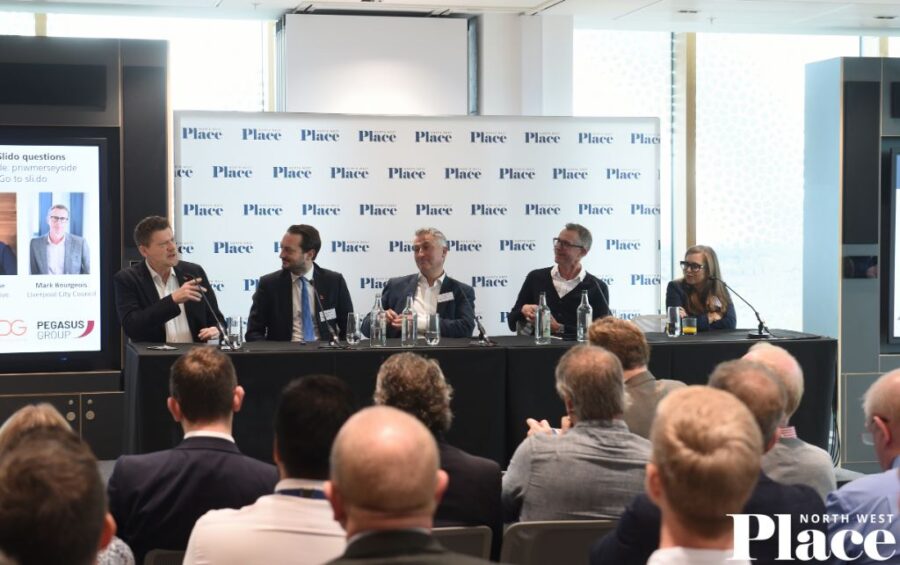
From left: Sciontec’s Colin Sinclair, Kinrise’s George Aberdeen, CBRE’s Neil Kirkham, Liverpool City Council’s Mark Bourgeois, Baltic Creative’s Lynn Haime. Credit: PNW
Economic struggles equal opportunities
Colin Sinclair, chief executive of Sciontec, began the first panel discussion with a resounding agreement with Rotheram’s sentiments about Liverpool’s future – despite the current economic climate.
“It’s very easy to be downbeat at the moment,” he said. “A lot of the property people I talk to are talking of a two-year recession, but nobody really knows…
“But what is clear is whenever there’s a downturn, that accelerates change in property, regeneration, and business. I think the shift to health and life sciences, digital materials, chemistry, and all of the things that Steve has talked about and that we focus on here in the Knowledge Quarter is going to be accelerated.”
Sinclair added that this would be a huge opportunity for the region.
“I think Steve’s points are really important,” he said. “Liverpool’s strengths are actually going to be the strengths that will count in the future.”
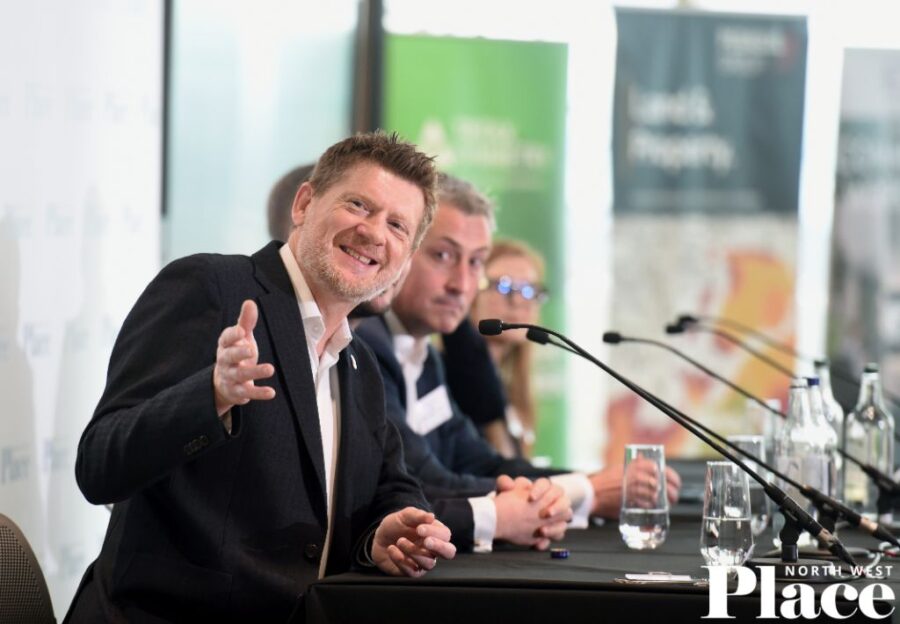
Colin Sinclair: ‘Liverpool’s strengths are actually going to be the strengths that will count in the future.’ Credit: PNW
Office supply needs fixing
The Liverpool office scene needs more Grade A stock, according to Neil Kirkham, senior director at CBRE.
“We’ve probably got about 60,000 sq ft of Grade A space in Liverpool at the moment,” Kirkham said. “The 10-year average is 385,000 sq ft take-up, so on paper, we’ve got two to three years from a Grade A perspective.
“But total availability is now single digit – 9% of total stock,” he said. “On that basis, we’ve probably got about 18 months of supply.”
This lack of office space has led to large companies bypassing Liverpool, Kirkham said. He explained that when these big corporations look to set up a base, they investigate several key criteria: the demographics, the talent pool, and the availability of good quality space for their office. There just is not enough space in Liverpool to attract those big firms, he said.
“There are five buildings in the whole of the city that can accommodate over 20,000 sq ft,” Kirkham said. “That’s something that we need to address.”
In the meantime, his team will continue to try and attract businesses to Liverpool – in particular those companies in the software and gaming industry, which he sees as a prime sector for the city.
Taking the plunge
It is not just outside companies who need to drive the office scene, but local businesses need to invest in quality space as well, argued George Aberdeen, co-founder of developer Kinrise, which is refurbishing the Martins Bank Building.
“This is a city that has the ability to go 150 miles an hour, but it’s slightly stuck in third gear,” Aberdeen said.
The reason? Aberdeen said it is partly because there’s a perception that local businesses will not pay premium rents.
Aberdeen is hoping that will not be the case, as Kinrise expects to achieve record rents in the city. He acknowledged that developing such an expensive space without a pre-let can be a “leap of faith” in the current market.
“I would really encourage people who are proud of their city and run companies in this city to just step into a new era of investment in their space,” he said.
“We have to have homegrown businesses who are willing to take great quality space and not argue over £2/sq ft on the rent,” Aberdeen continued. “Your company will thrive, your people will love it, and other companies will come as a result and the whole place goes. Then you get into the next gear and then the next gear and you grow and you’re off and the sky’s the limit.
“This place has the opportunity to be absolutely world-leading again.”
So what’s holding Liverpool back? Aberdeen spoke about the strength of the globally recognised Liverpool brand. Lynn Haime, chief executive of Baltic Creative, added that Liverpool can brag about itself even more, referencing the city’s heritage, culture, football, and arts scene – not to mention its big technology sector.
But there are two things that Haime has noticed are keeping investors at bay: prices and planning.
Regarding the prices, she notes that Liverpool rents do not yet compare to those of nearby Manchester.
“People looking at opportunities for investment and development might be looking in the North West. They go to look at Manchester and go ‘I can get £40/sq ft for that. But if I spend the same money in Liverpool, I can only get £16-£18′ – whatever it may be,” she said. “It’s a quick decision at that point.”
She echoed Aberdeen’s point about taking the leap. “We need bullish investors to come in and push [the market] to the next level to see the rents climb.”
Planning woes
Then there’s planning.
“There are some investors I know that are slightly reluctant to look at Liverpool – who have almost written it off at the moment,” Haime said. “They say they’ll wait until it has all calmed down a little bit and got a bit better, then they’ll come back and have another look at it – which is great. But you need those developers to come now and actually kickstart the market and the economy.”
Delays in planning applications being processed have made Liverpool feel unstable for some. But Haime added that she knows those “planning frustrations” are being addressed. When they’re sorted, she said it will make a big change.
“People will be more confident coming in and getting stuck in,” she said.
Mark Bourgeois, interim director of city for Liverpool City Council, agreed that planning needs to speed up. He praised the work of the city’s head of planning, Sam Campbell.
“We are really going through a process to really invigorate that team, to take the team from being just processors of planning applications to real place pioneers,” Bourgeois said.
He added that there is a resource issue in the planning department. However, he stated that in the first three quarters of the year, the planning team has processed and issued decisions on more applications than all of last year.
Bourgeois acknowledged that there is still more work to be done, but he added that the city was on a good path.
“Working as part of a really motivated leadership team and working with a cabinet led by Mayor Joanne Anderson that is absolutely focused on improvements and working really collaboratively with the commissioners – there’s an absolute focus on getting things right and improving the workings of the council for the good of the city as a whole.”
All about Runcorn
Stephen Young, chief executive of Halton Council, kicked off the second half of the conference with a presentation on the borough’s plans for Runcorn.
Runcorn, in Young’s words, is “very typical of most Northern towns,” and faces a series of challenges. Its high street has suffered as shopping habits shifted online. A lack of investment in housing has meant more is needed in the centre and the public realm has been “unloved”.
But the council is working on changing all of that, enabled, in part, by an award of £23.6m in Town Deal funds last year.
One of the first steps in transforming Runcorn was looking at Runcorn railway station. Young said he never had the pleasure of visiting before then, but he said he was told that upon arrival “you were welcomed with a nine-foot grey wall that acted as a physical and psychological barrier to the town centre.”
The town set about removing the grey wall and creating a piazza. This has already been delivered and is attracting businesses, according to Young.
“It is a really strong marker in terms of the work we want to do across Runcorn going forward,” he said.
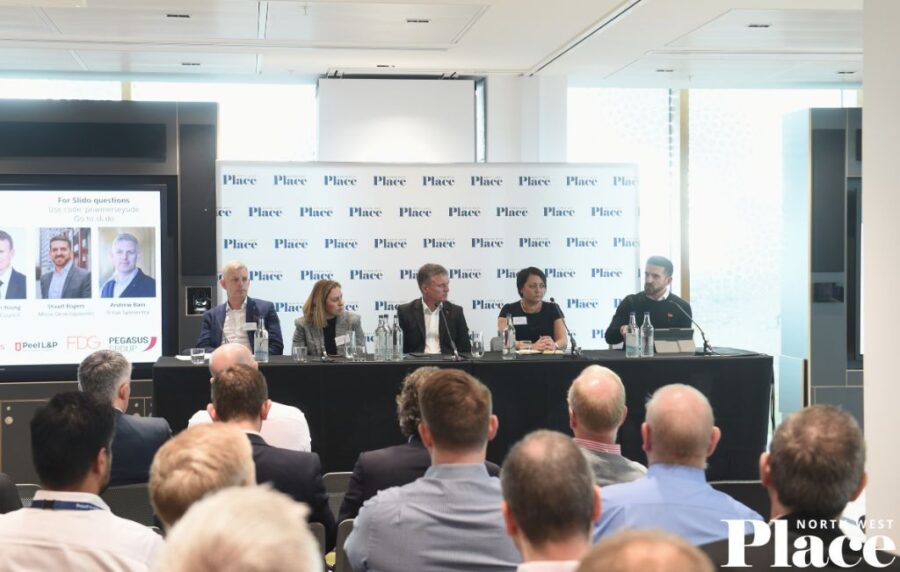
Tritax’s Andrew Bain, Fairhurst Design Group’s Laura Sherliker, Halton Council’s Stephen Young, St Helens Council’s Lisa Harris, Muse Developments’ Stuart Rogers. Credit: PNW
Strong partnerships
The second panel discussion kicks off with a short discussion about partnerships between the public and private sectors. Lisa Harris, executive director of place services at St Helens Council, discussed her local authority’s approach to working with the private sector.
Harris reflected on the work the council has done with non-profit Glass Futures, the combined authority, UK Research & Innovation, and Network Space on the £54m Glass Futures Centre of Excellence, set to open in February. She said that letting each partner do the role they’re best at was important.
“It was very much about knowing what the council is good at and knowing what your partner is good at,” she said. Development partners excel at delivery, she added, but the council is good at having a vision and gathering community support.
“In partnerships, it’s really important we play our part and we play it really strong,” she said.
Stuart Rogers, project director at Muse Developments, echoed Harris’s sentiment adding that strong leadership from the council is key.
“If there’s strong leadership and a quite bold, defined vision, then we can start to go in there and supplement how we can deliver long-term regeneration over a minimum of 15 years,” Rogers said.
Readying sites is a large part of that. “It’s not always at full pelt delivery,” he said, adding that the current economic situation and market instability have meant some projects will not start on site for a while. But it is important that authorities and their partners get those sites ready in the meantime so that when funding is available delivery can begin.
Andrew Bain, construction director at Tritax Symmetry, added that a clear council vision is important for more projects than just regeneration ones.
“Where schemes work for us is when we work in an area where the local authority is open for business,” he said.
Bain added later: “We’re only working in an area with a local authority that is stable politically and has an office and administration who know what their vision is and know what they want to do.”
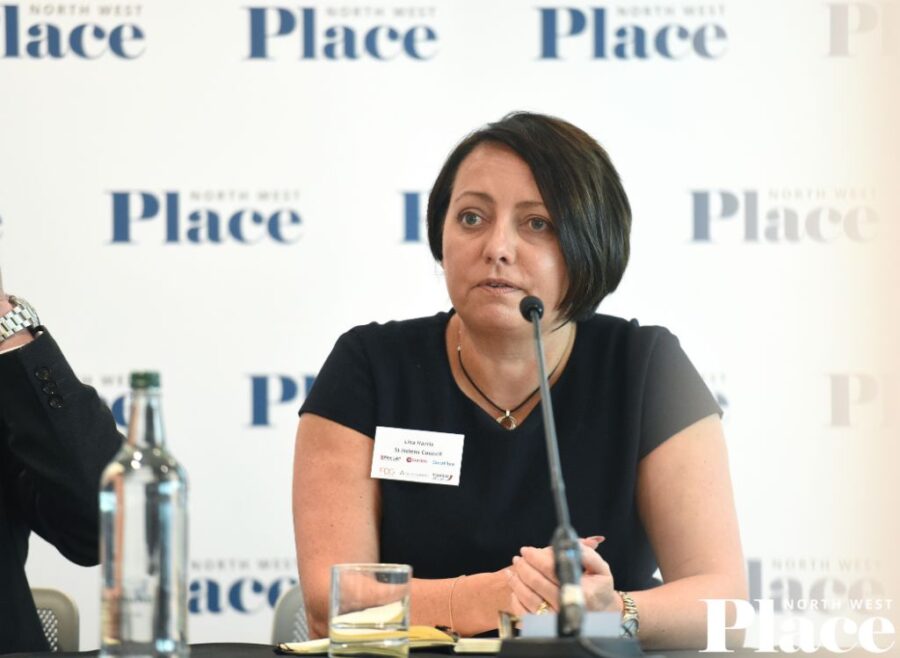
Lisa Harris: ‘It was very much about knowing what the council is good at and knowing what your partner is good at.’ Credit: PNW
Economic pressures
Adding to the economic debate, the panelists made it clear that it is not just major public sector projects that are facing uncertainty.
Bain acknowledged that the previously red-hot industrial market has “got a little bit tougher”.
But Tritax is not putting things on hold until the market improves.
“We’ve got a strong pipeline in the occupy-led market,” Bain said. “Our speculative schemes, they’re going a bit slower. You’ll find other developers who are doing things speculatively or looking to bring money in from the markets are slowing down a little bit too.”
Laura Sherliker, director at Fairhursts Design Group, has said that her company is seeing lots of new work coming through, but a lot of that work is initial feasibility studies.
“We’ve got a lot of clients who are looking at projects that will start to move forward in early January – but they are looking to see if the market will soften,” she said. “We’re talking about pauses – not of any large scale, but who knows what January, February, or March will look like?”
Sherliker continued: “We’ve had projects where the costs have gone up 40% over the past year. That’s a significant impact on the scheme and yes, rents can go up to support that and appraisals can move – but it’s a challenging time in the market.”
Rogers described how Muse is handling rising costs on its projects with councils: “For us, it’s about early flagging what costs are increasing, getting right into the detail, and then being honest with each other,” he said. “Just addressing it head-on and taking action immediately.”
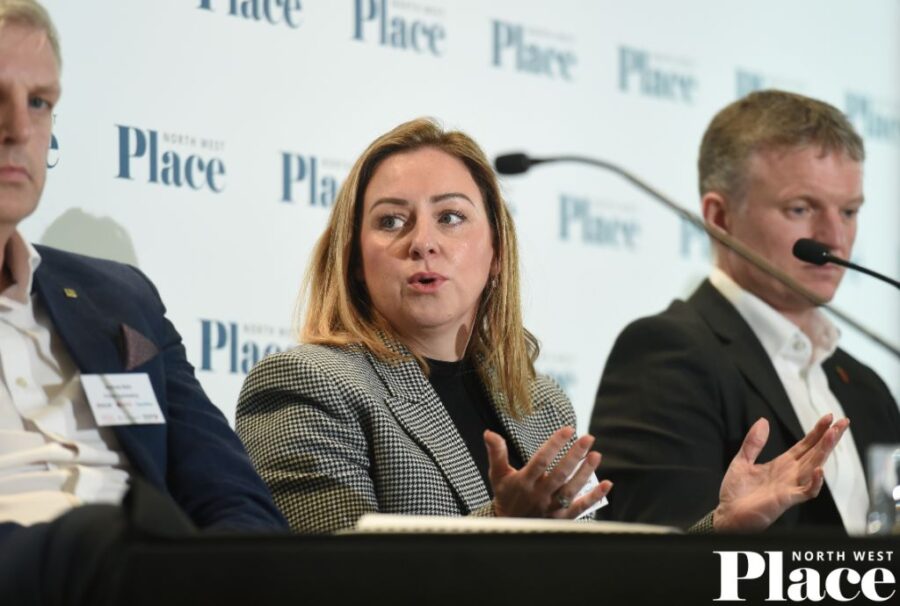
Laura Sherliker: ‘Sustainability is still at the forefront of the vision and outcomes for projects.’ Credit: PNW
Sustainability
Despite costs rising, sustainability is not taking a backseat, according to the panellists.
“Both public and private clients that we’re working for are still pushing forward with their sustainability agendas and not moving those targets,” Sherliker said. “Sustainability is still at the forefront of the vision and outcomes for projects.”
Bain agreed, describing how sustainability is now being required by funders and occupiers. That has changed the conversation around net zero he said, and given the green agenda a longevity it may not have had before.
“It isn’t just teenage activists driving this,” Bain said. “It’s here to stay.”
The funding pot chase
With the announcement of the second round of Levelling Up awards looming, the panel was asked if these large government funding pots are doing more harm than good.
Young said that these funds definitely do not cause harm, but can be “frustrating”.
“The frustration is the amount of resource and effort that has to go into [submitting a bid]. While we were successful with our Town Deal bids, lots of people weren’t and they were putting just as much work and effort into it as we did,” Young said. “That just does not feel like a really good use of resources.”
Later he pitched his solution: “If I was the government, I would ensure that local authorities in the public sector have agreed investment pots over a longer period of time, so we can plan. We can work with private-sector partners and have more certainty and surety around what investment we can make in a particular area, as opposed to us being sent off to chase the next funding pot.”
The next Place North West event is the launch of Serendipity Labs in Salford on 17 November. Those who wish to attend this free event must register their interest.
Click on any image to launch the gallery
- Rotheram is going big on transport in a bid to secure a third term. Credit: PNW




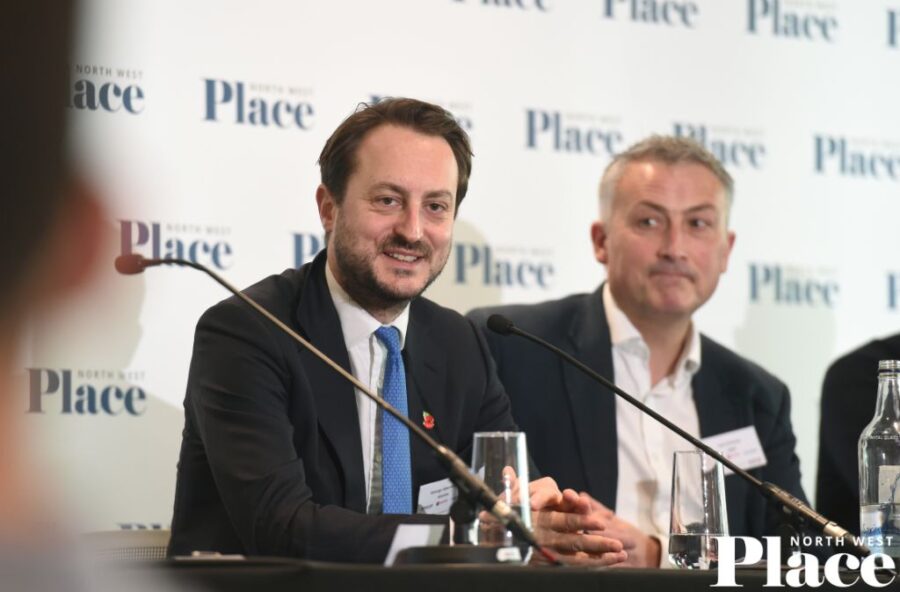
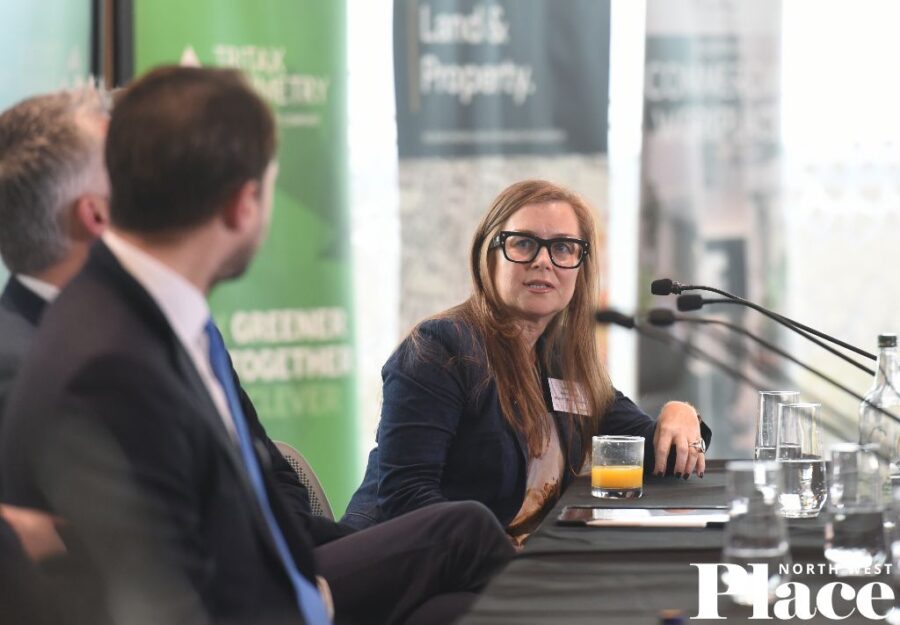
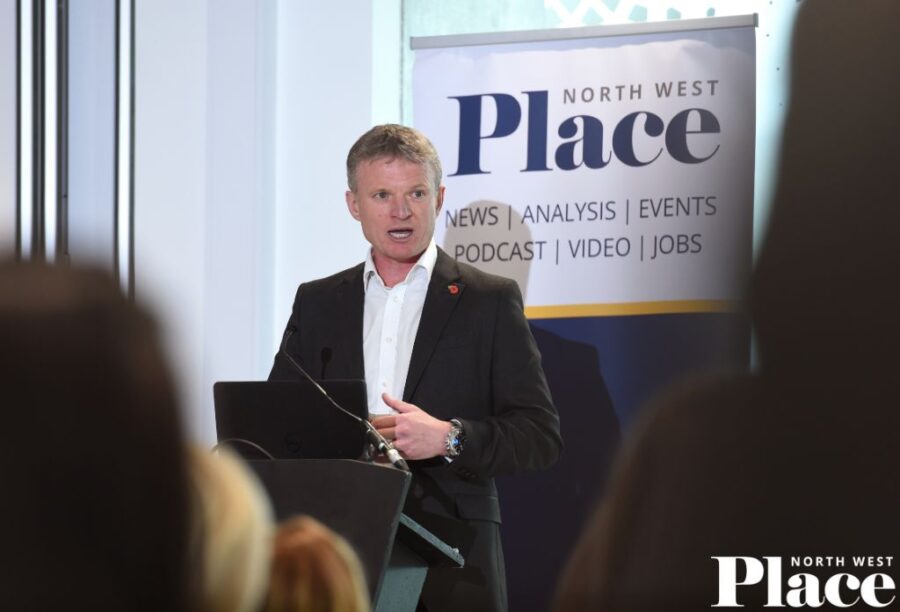
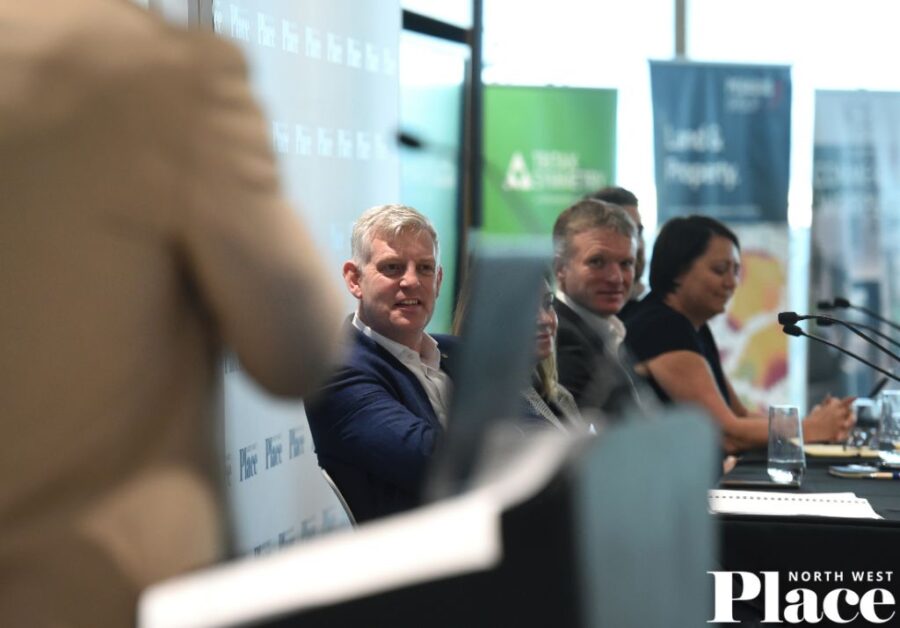
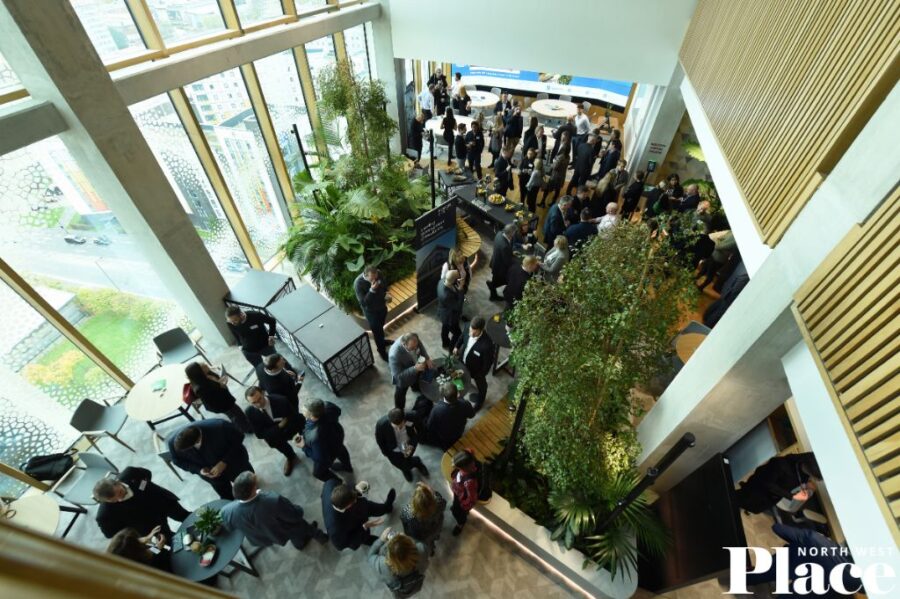
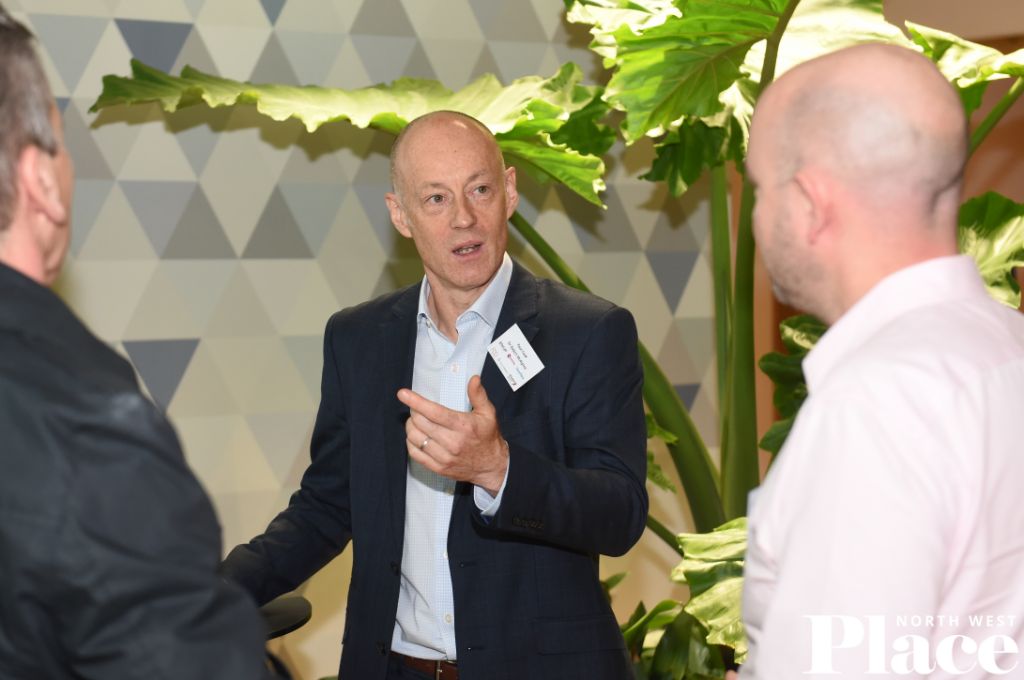

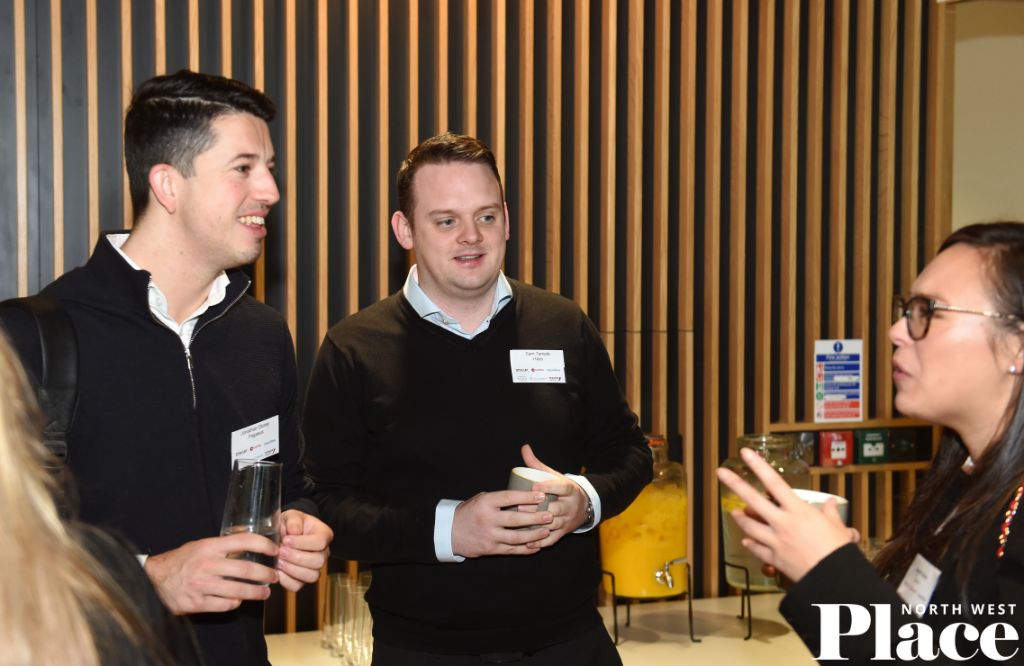
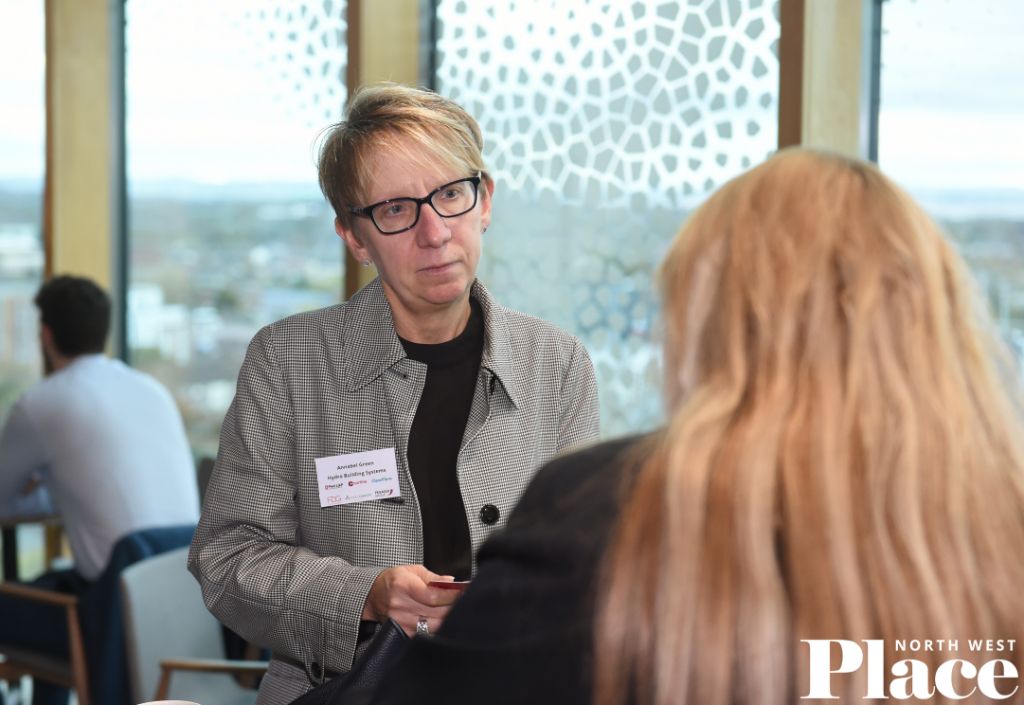


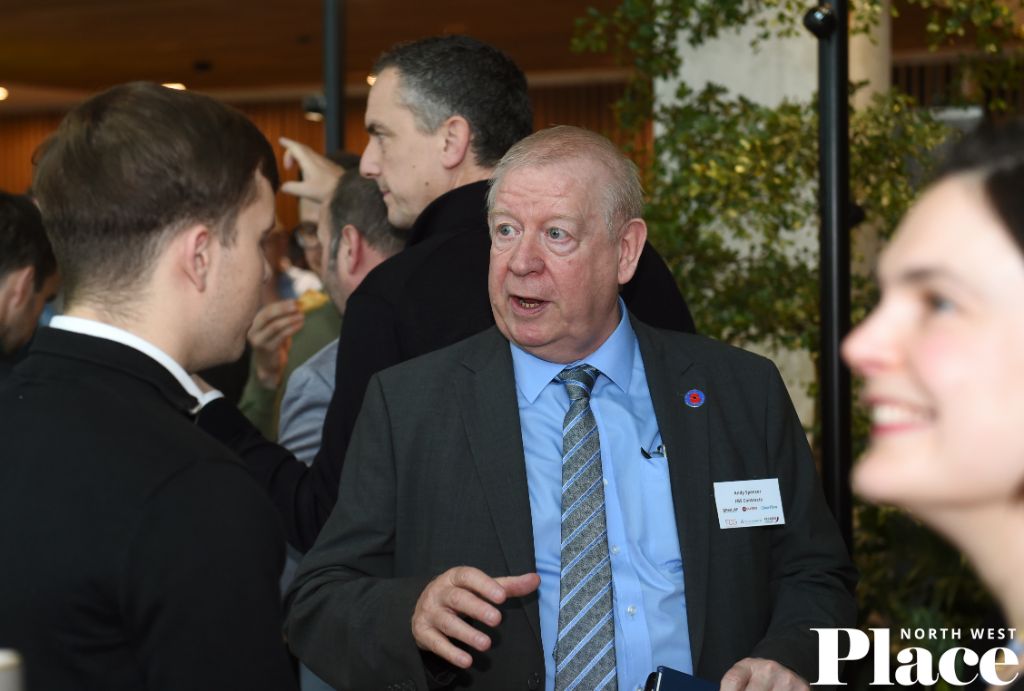
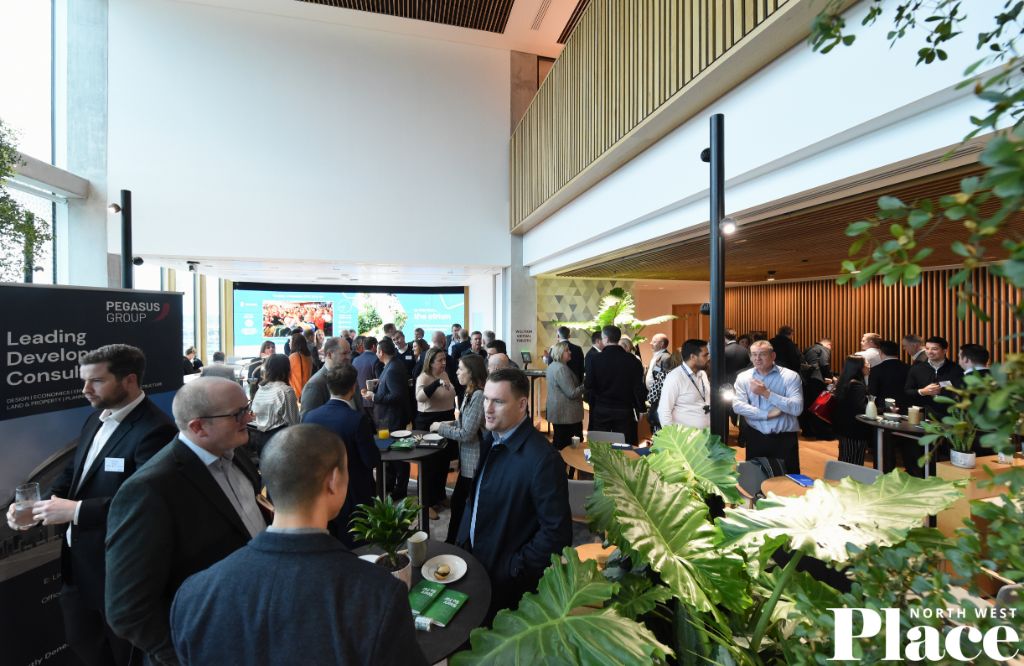

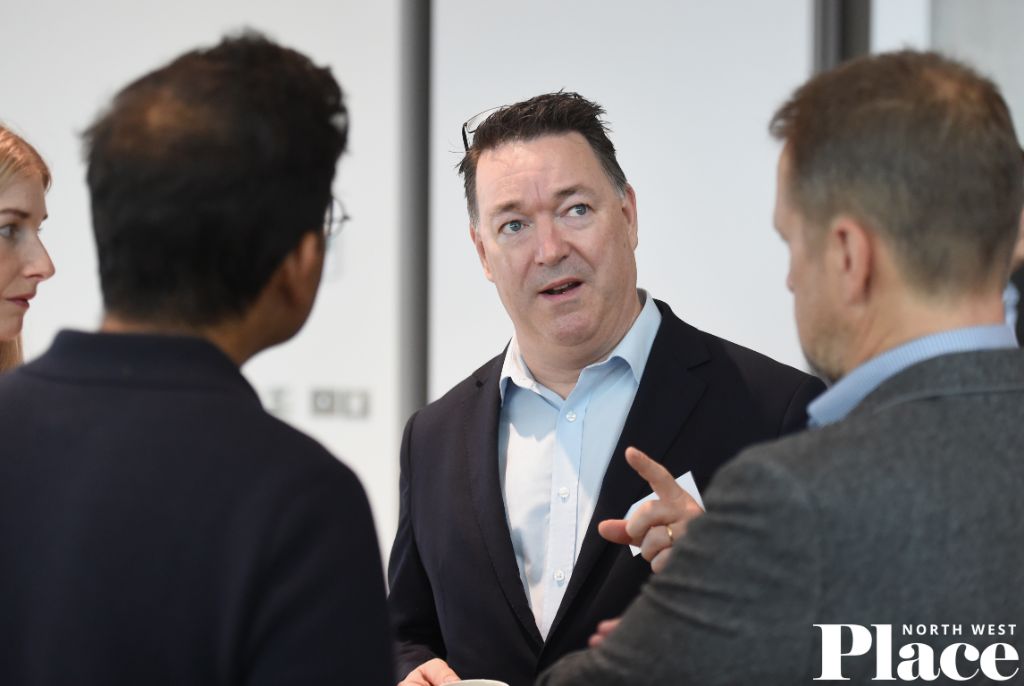
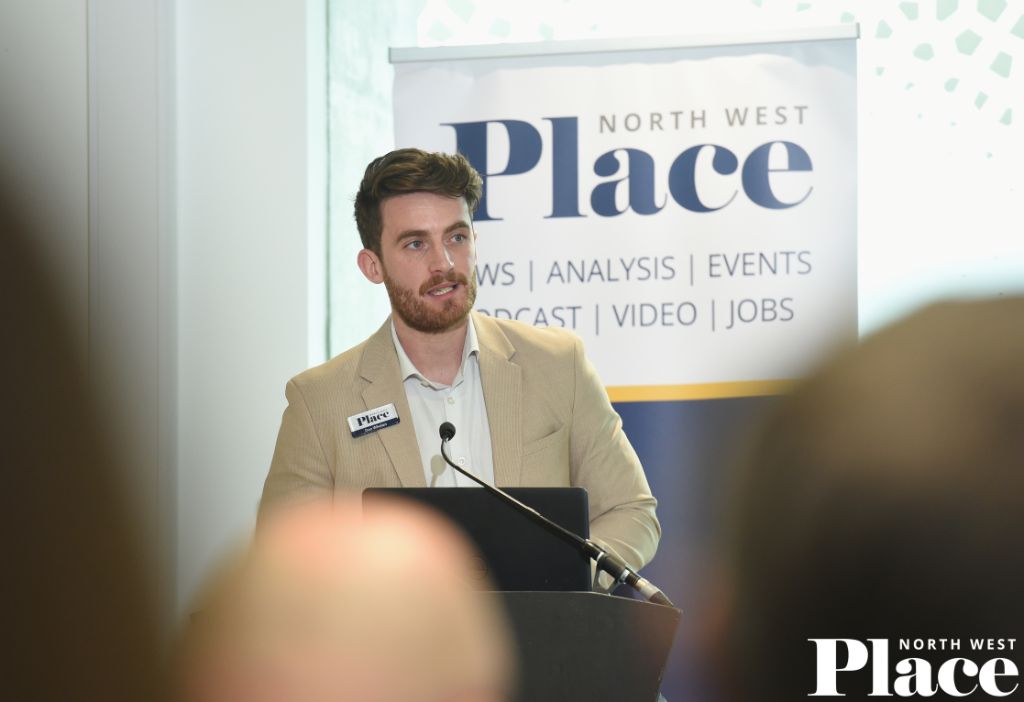
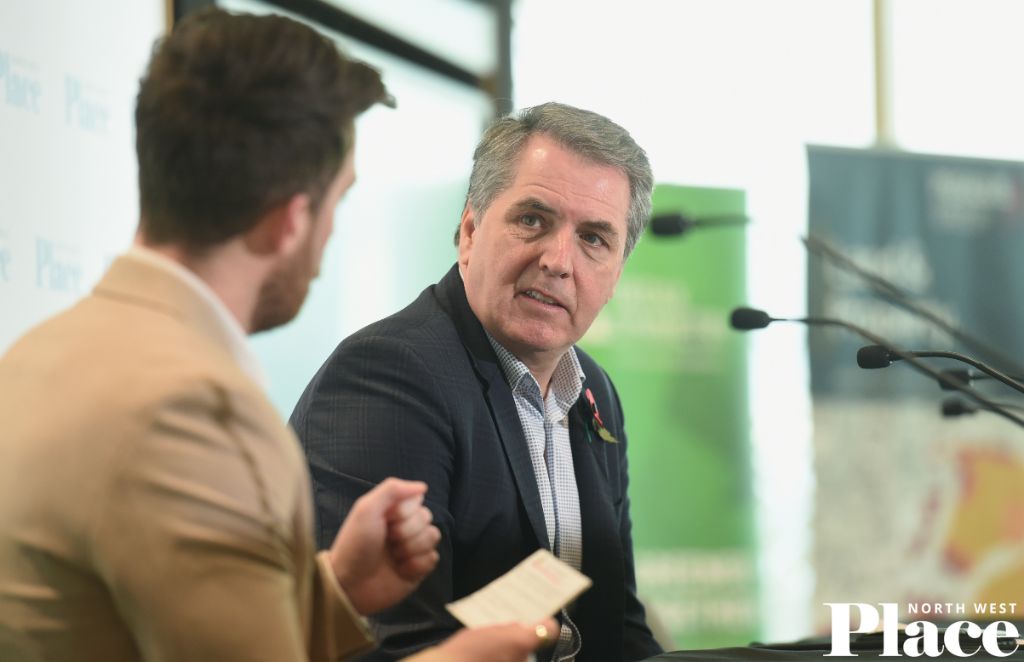

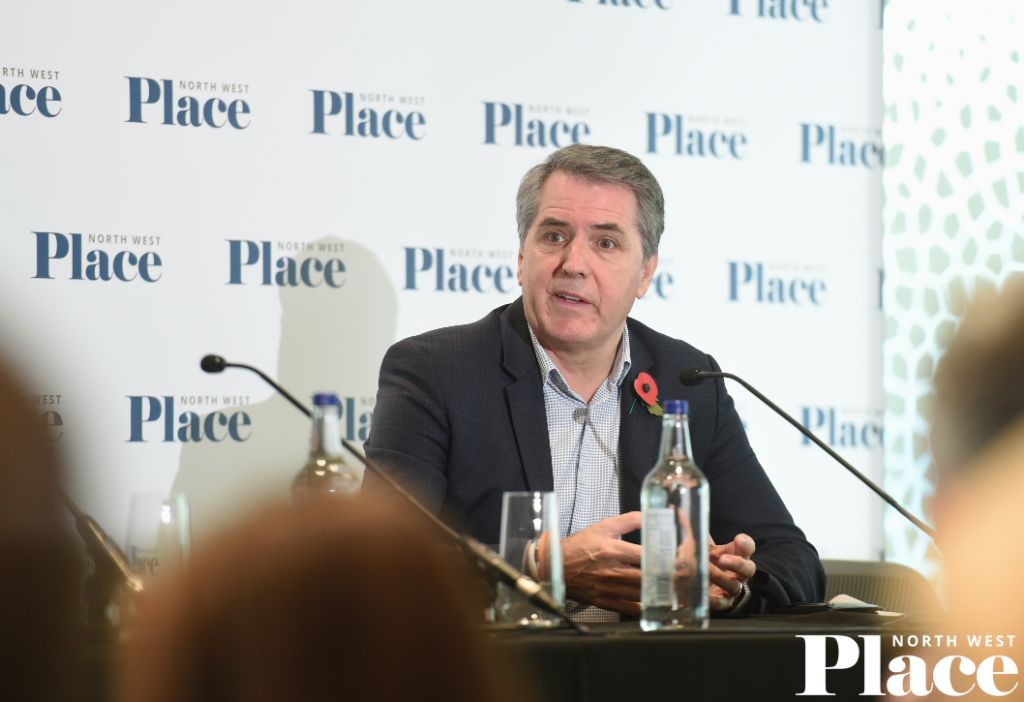
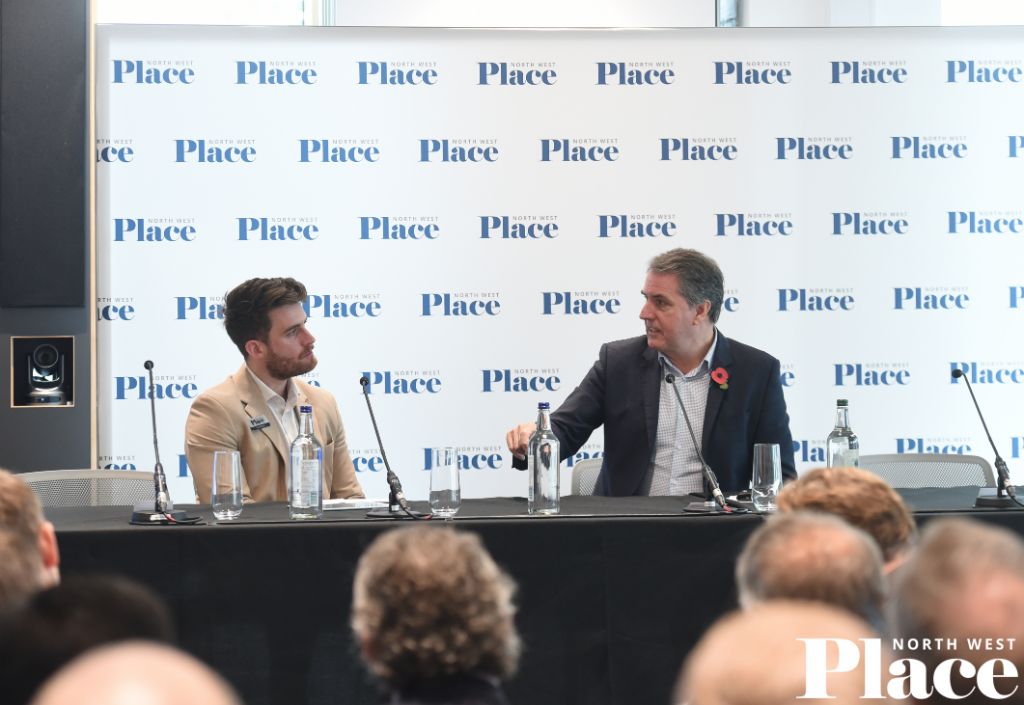
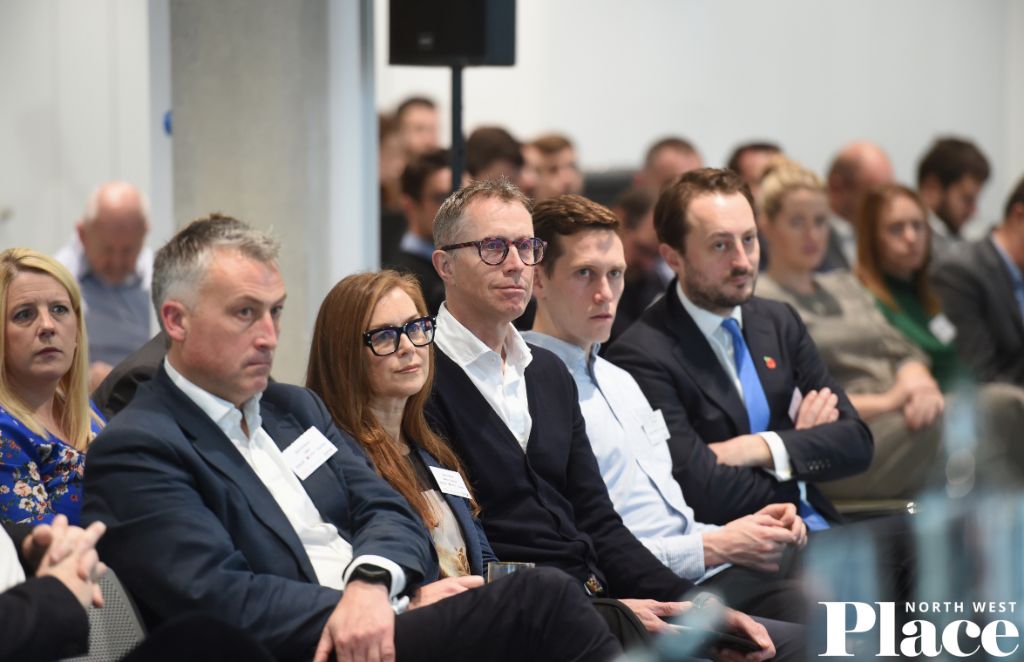


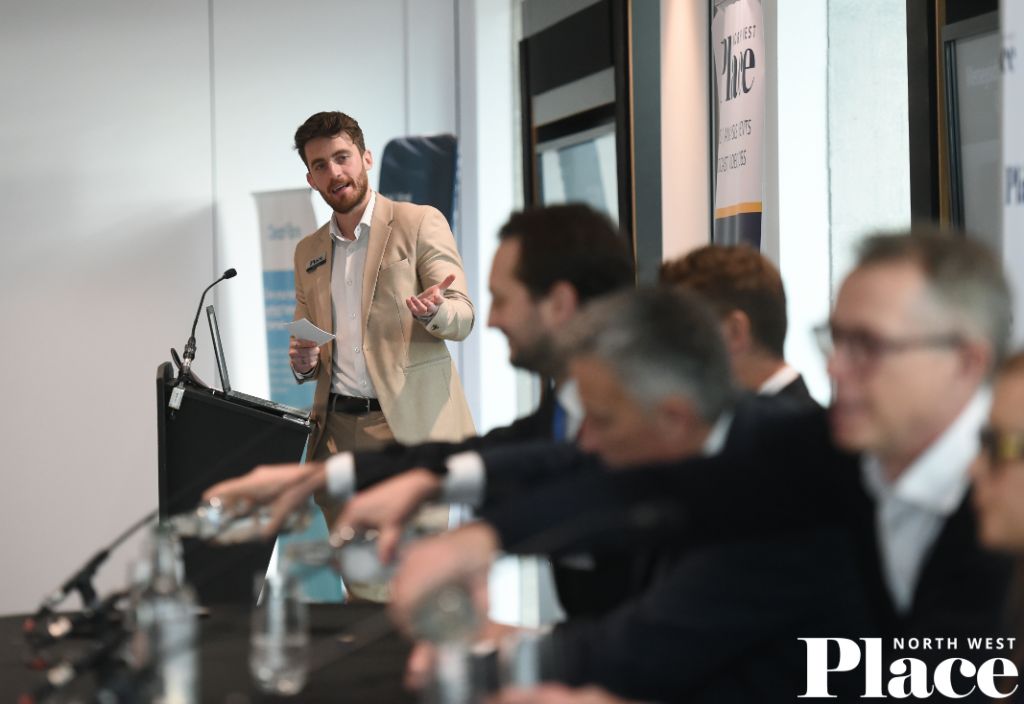
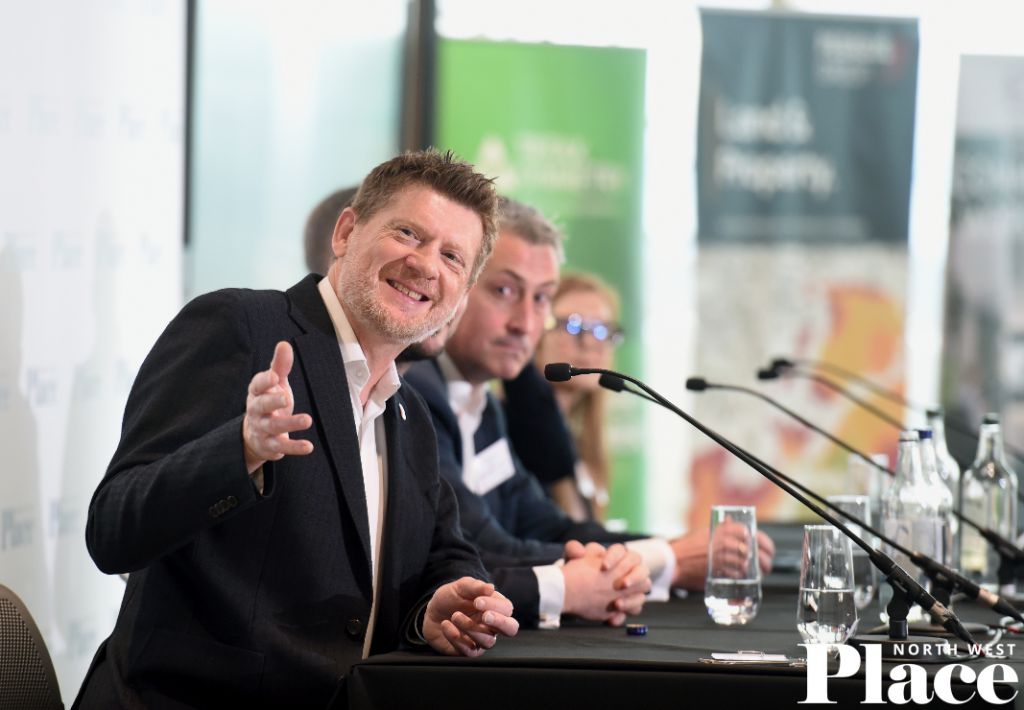
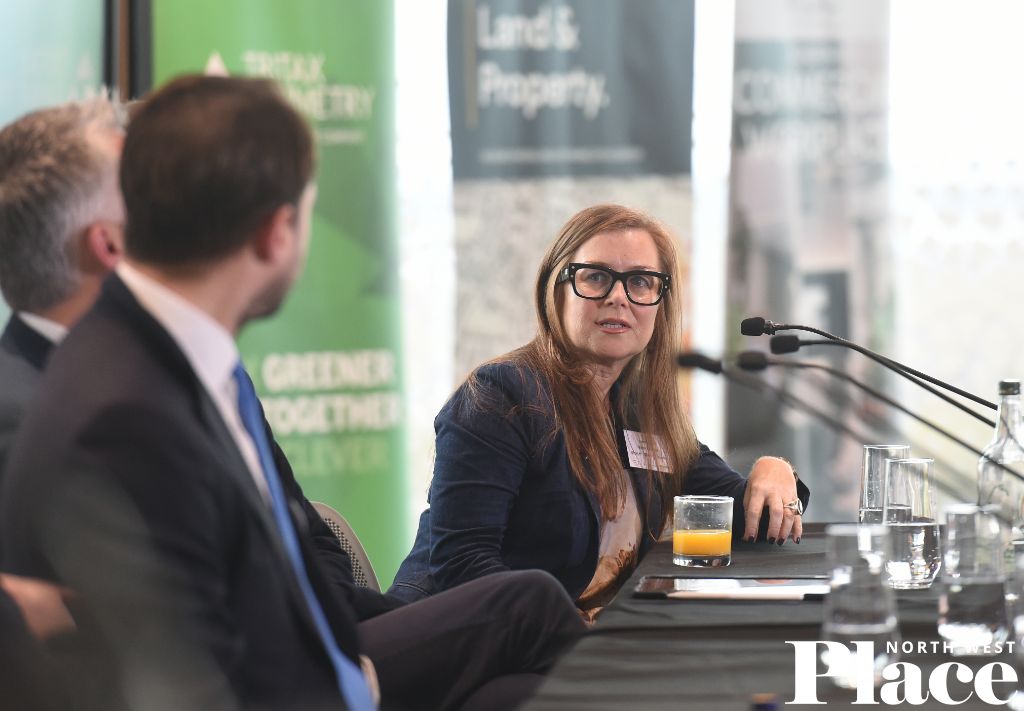
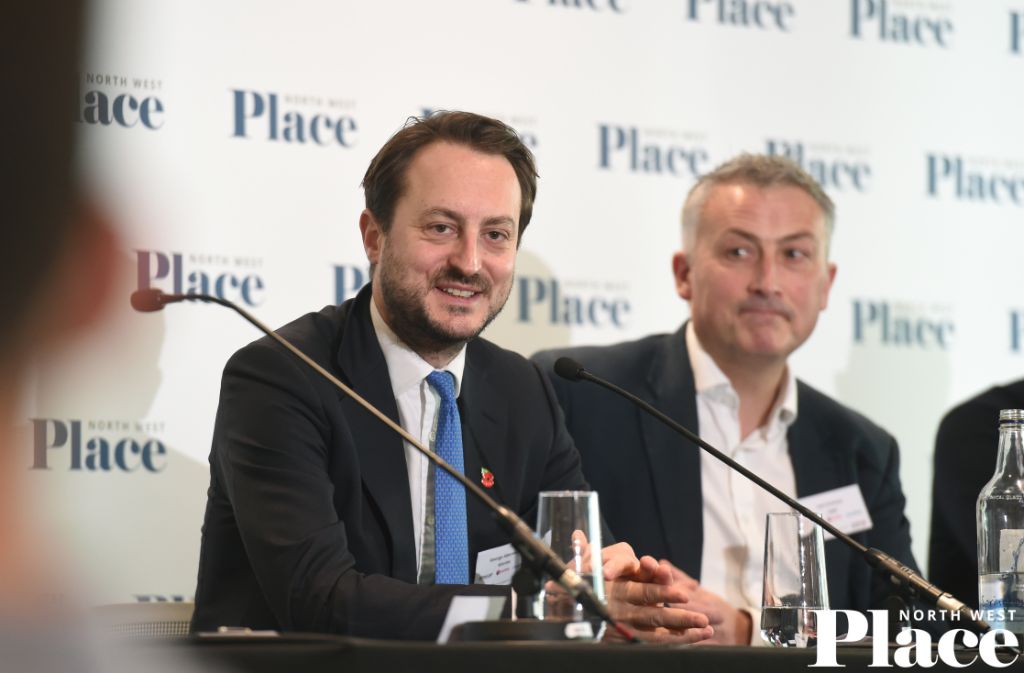
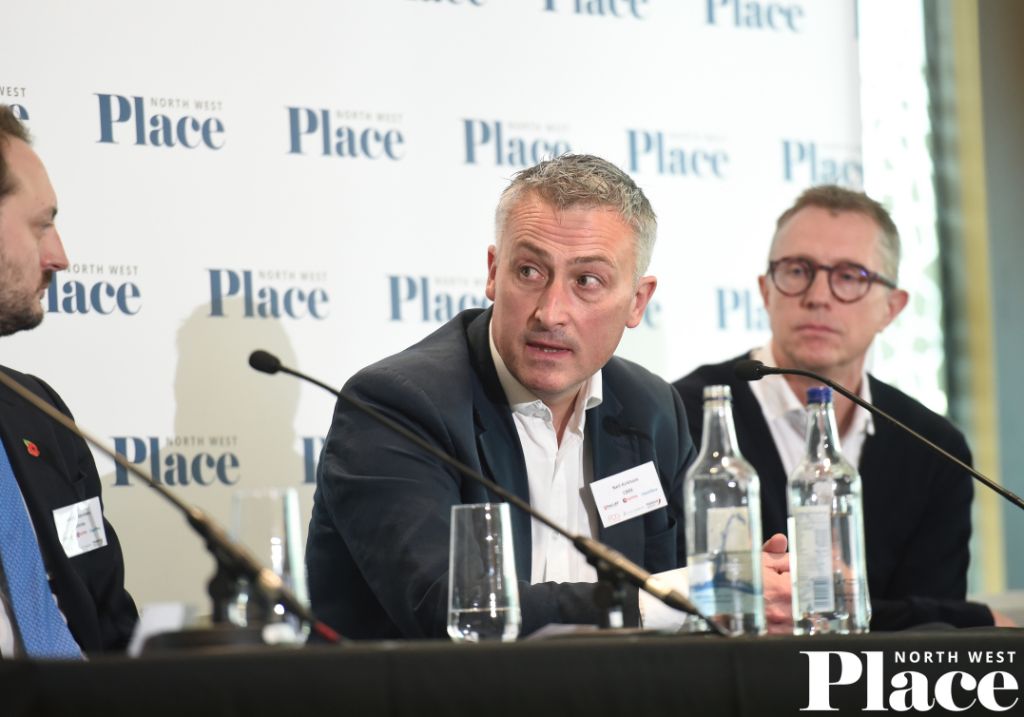

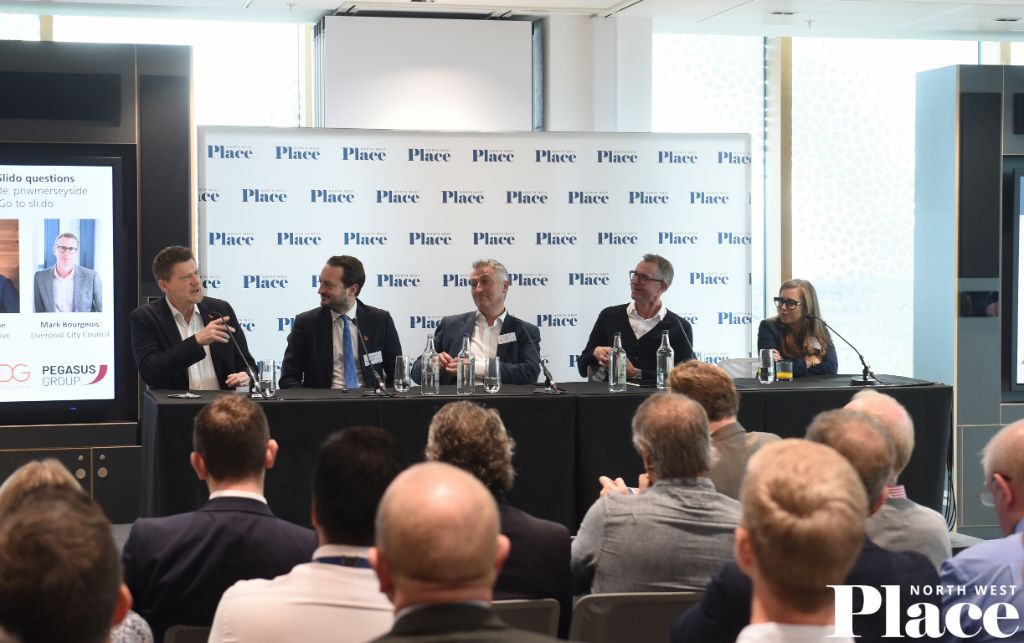
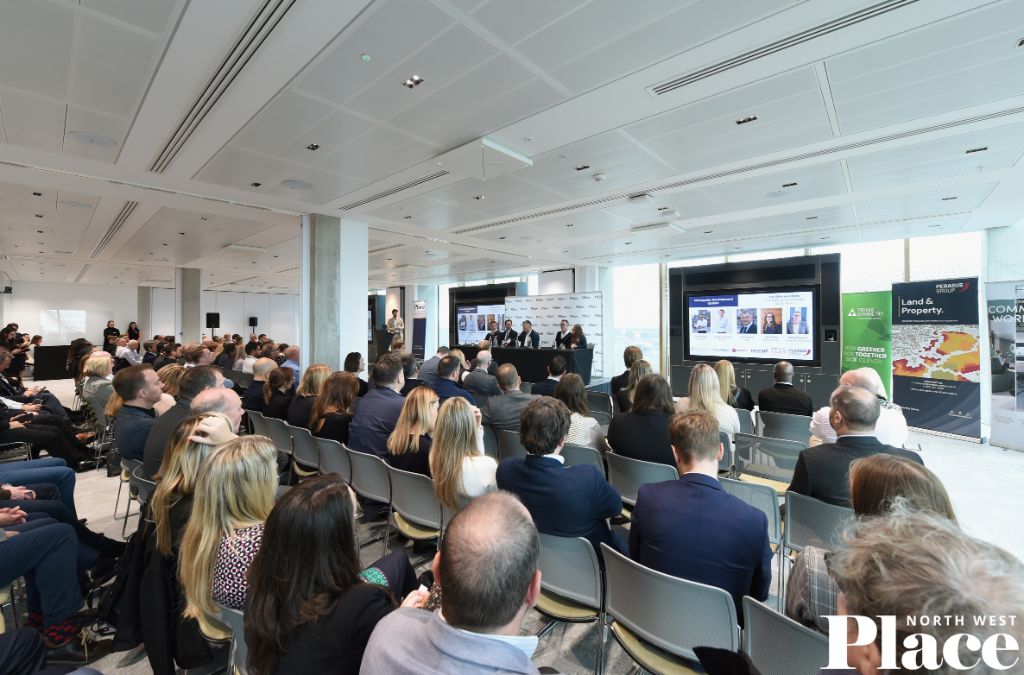
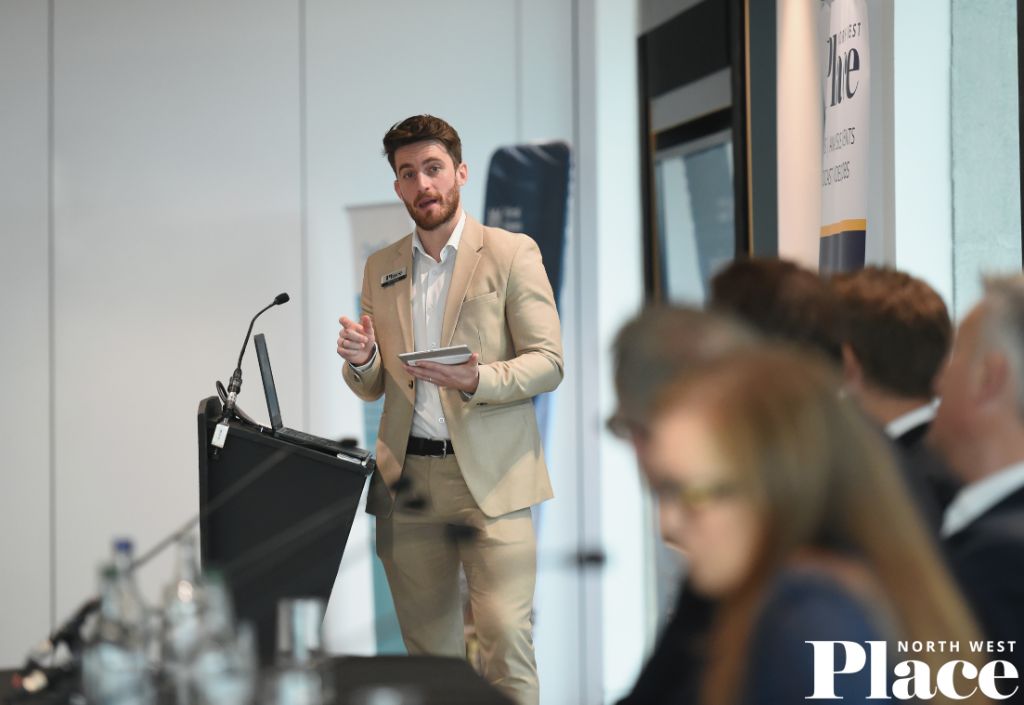
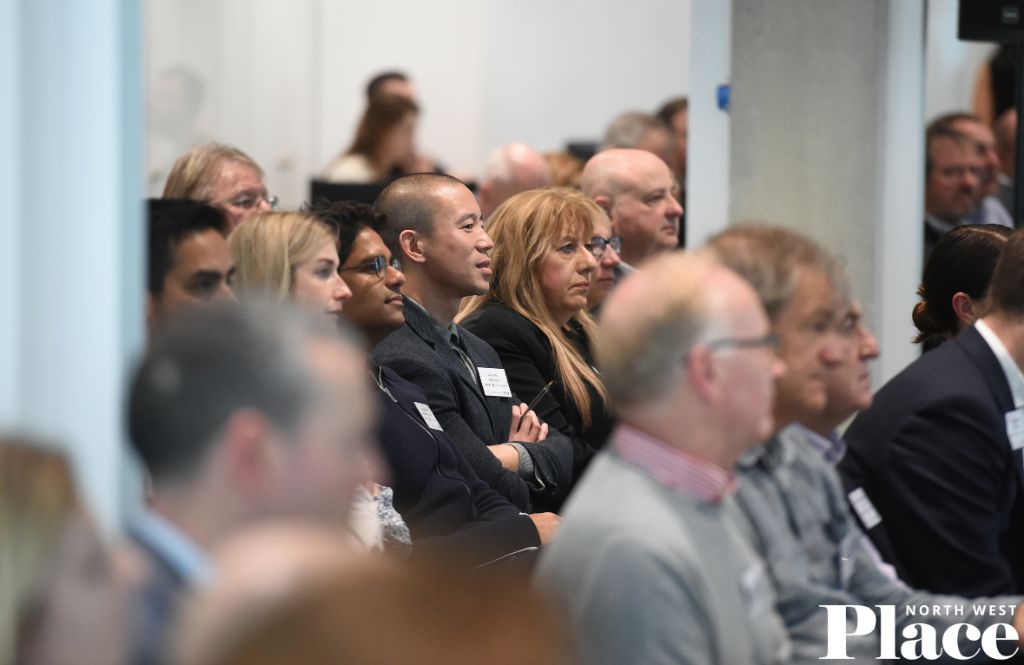
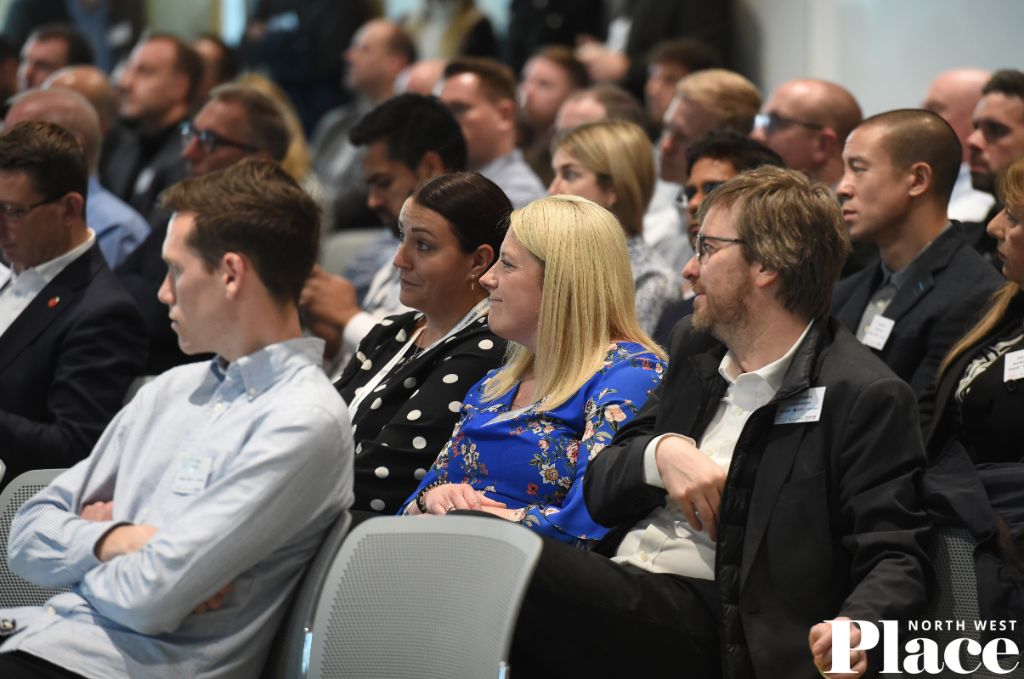
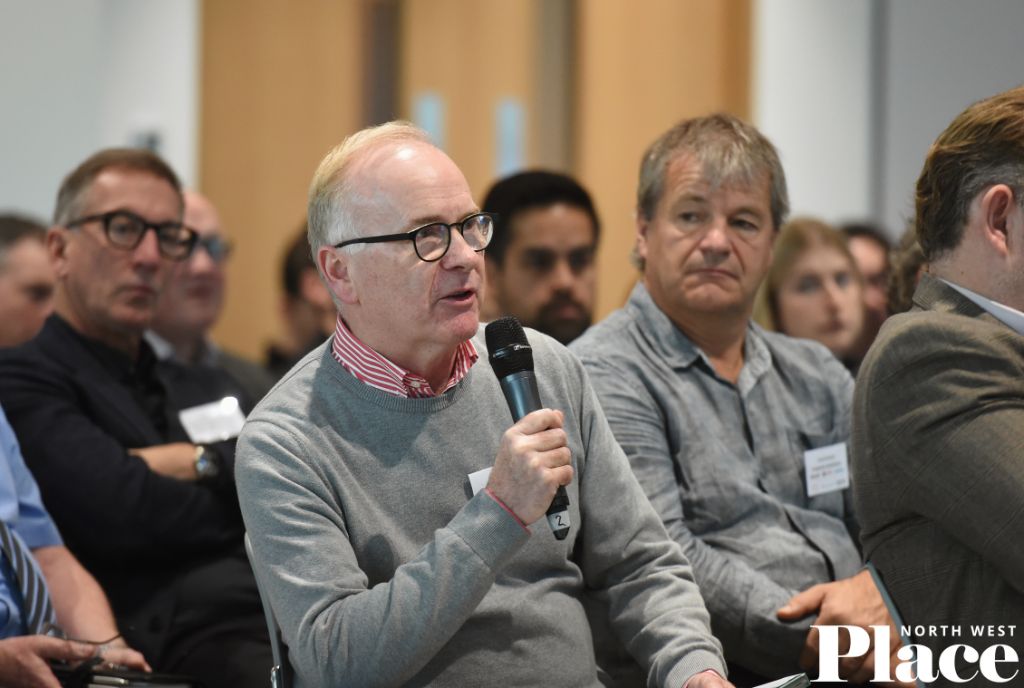

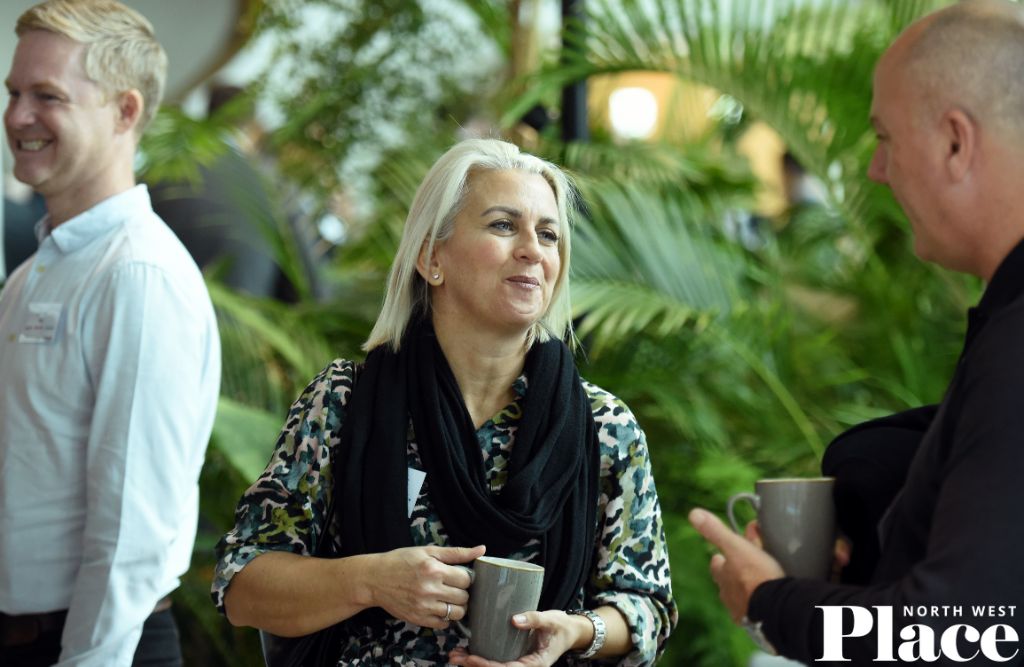

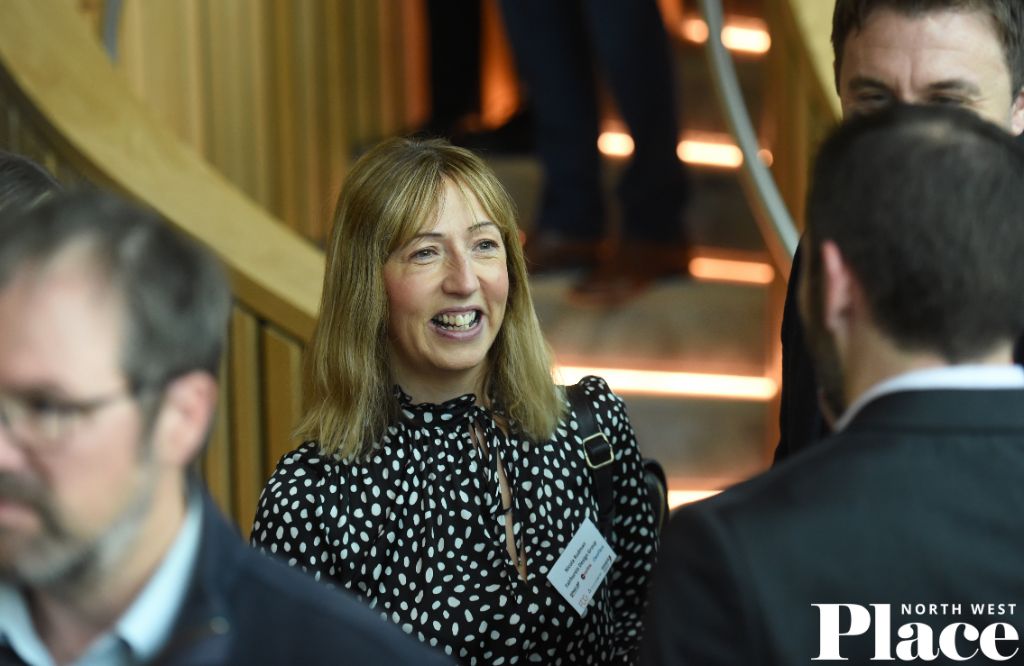
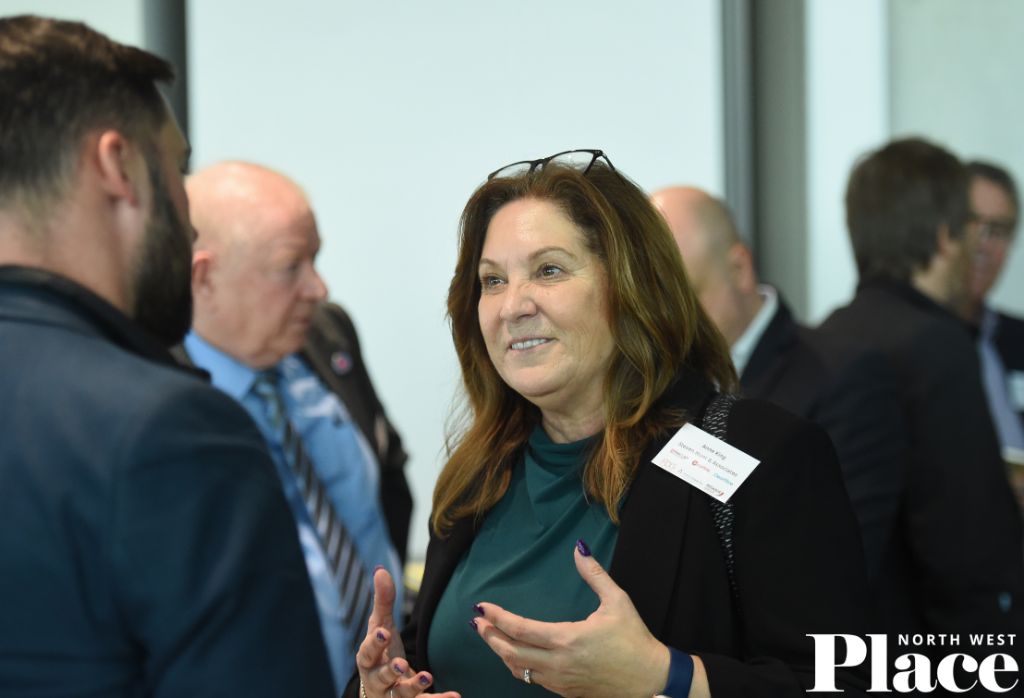


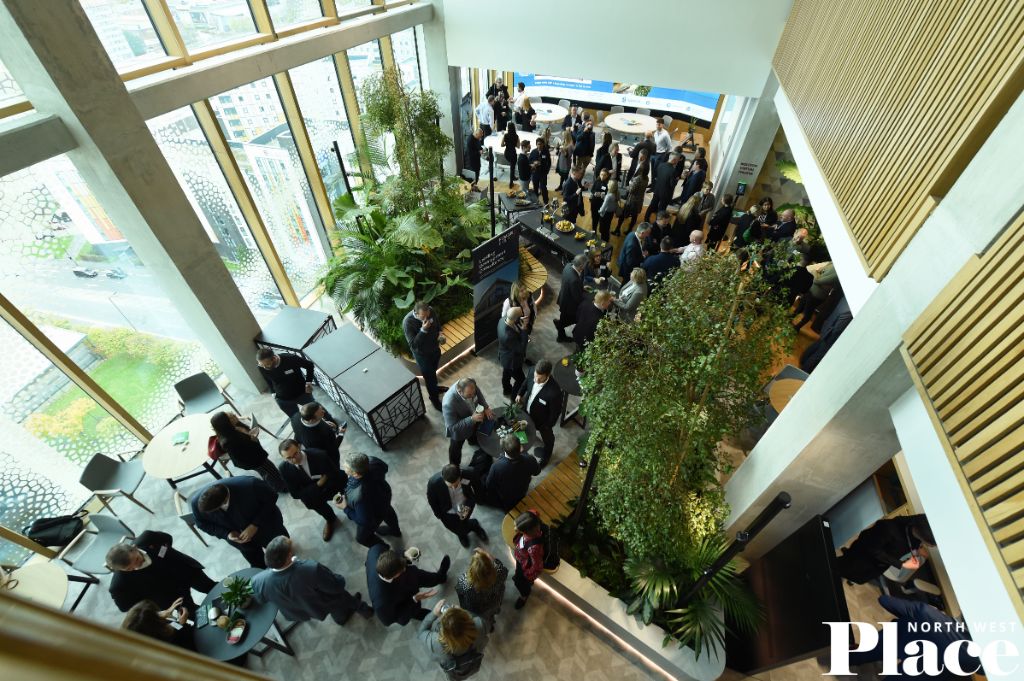
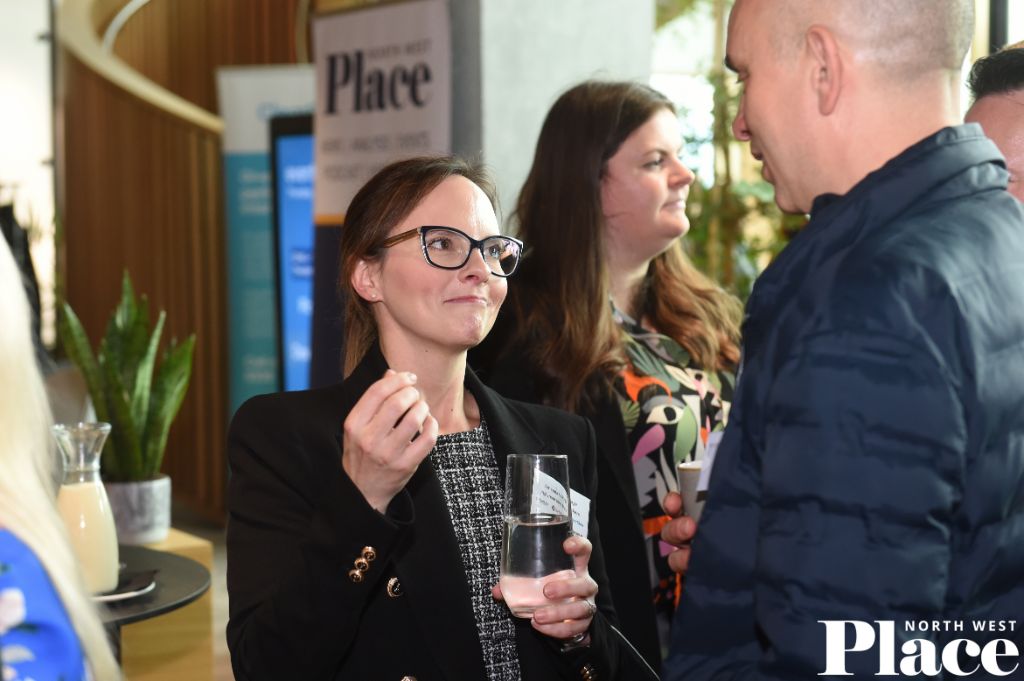
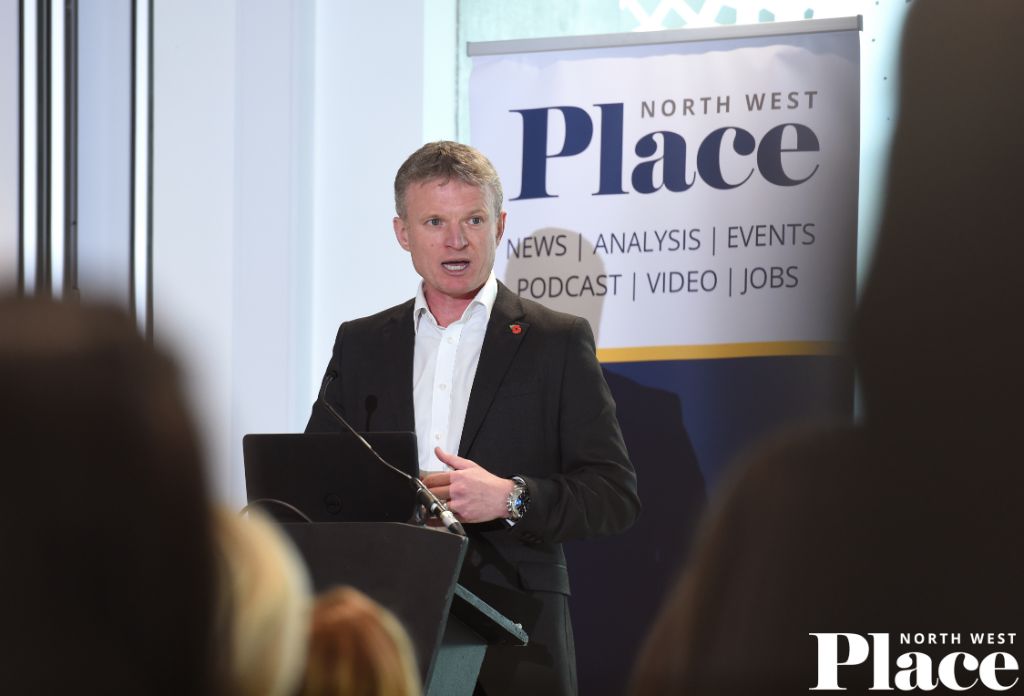
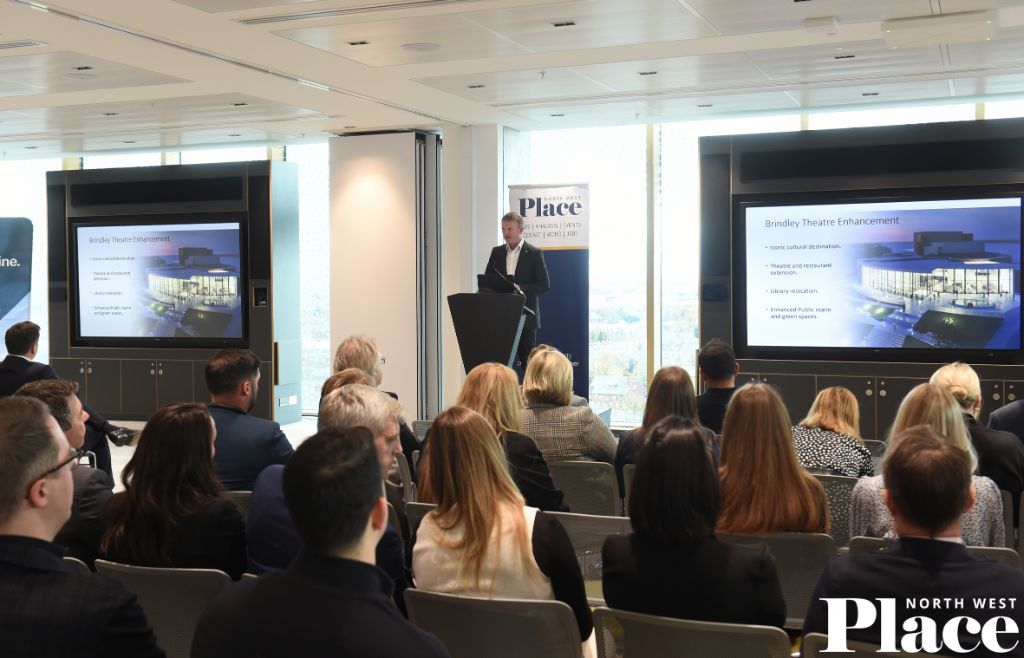
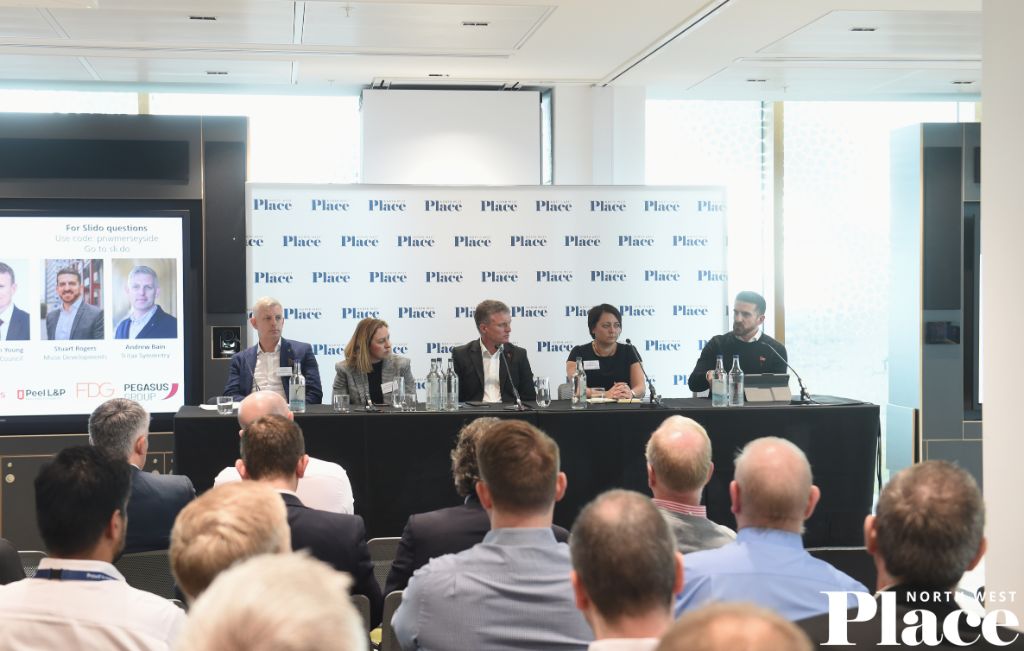
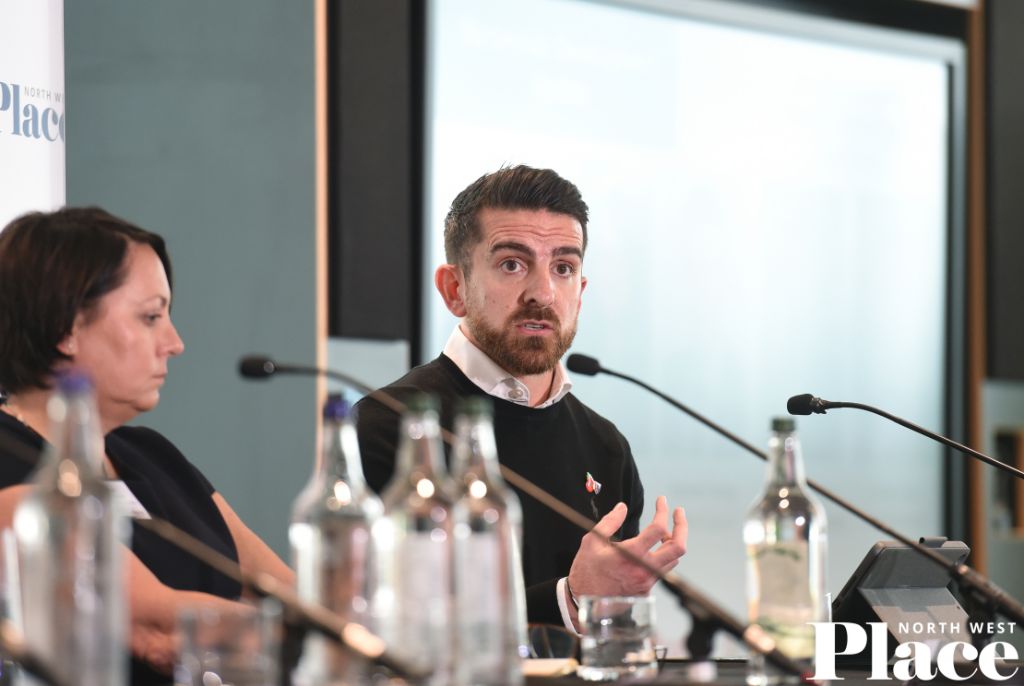
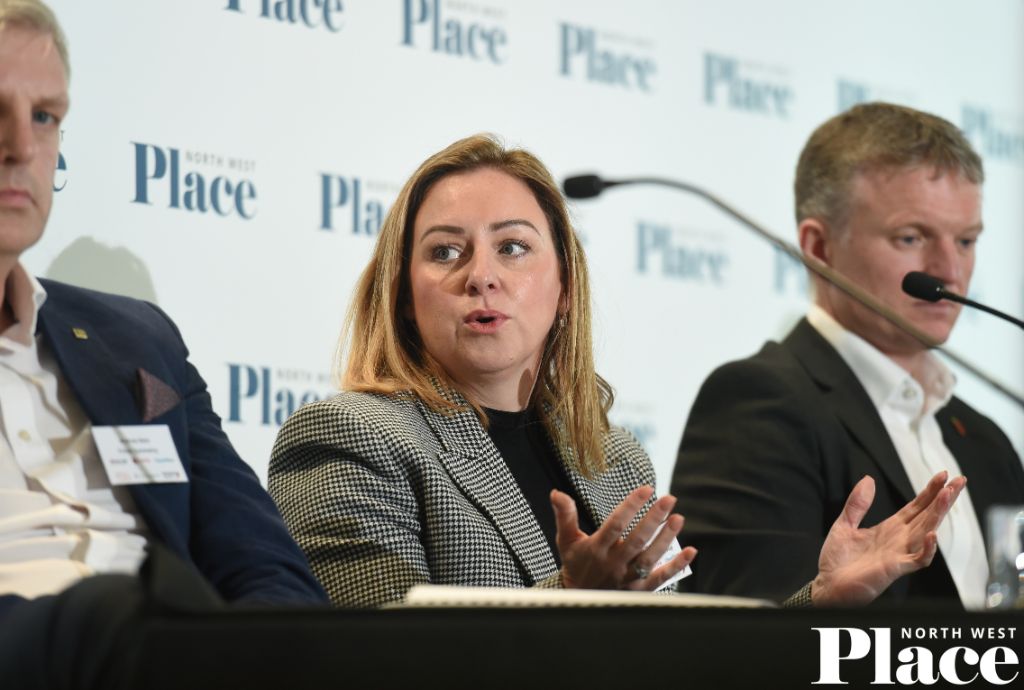
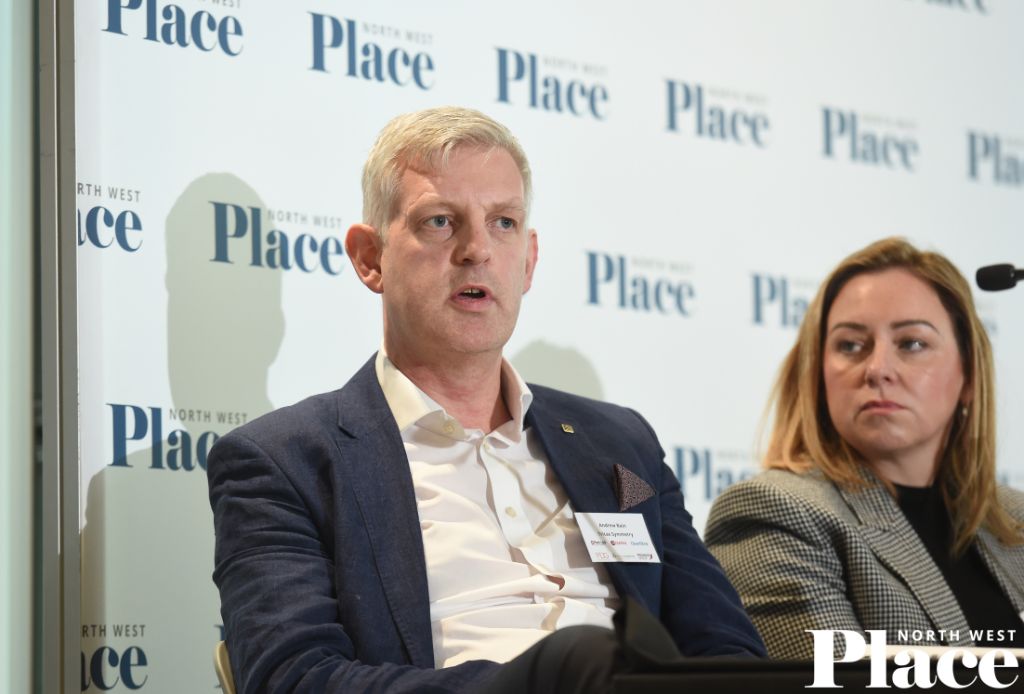
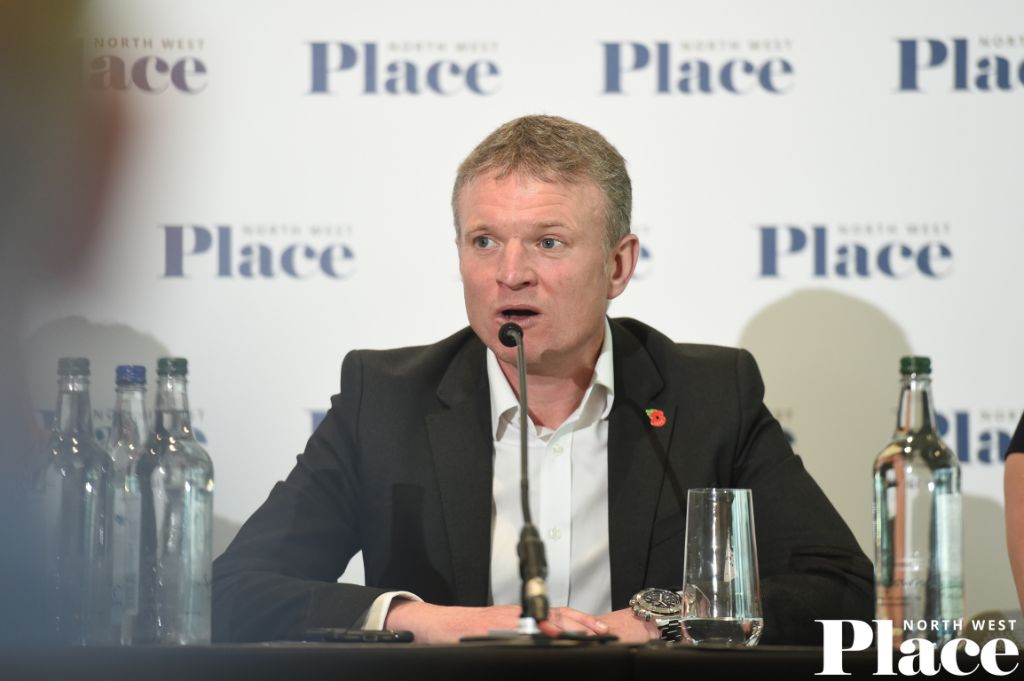
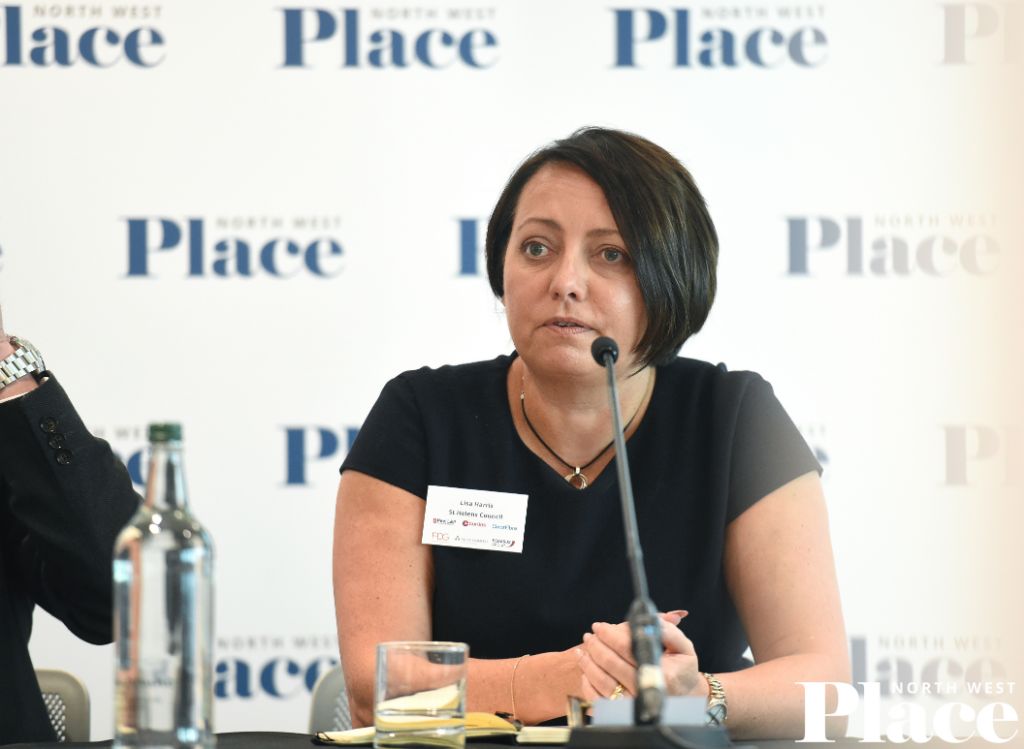
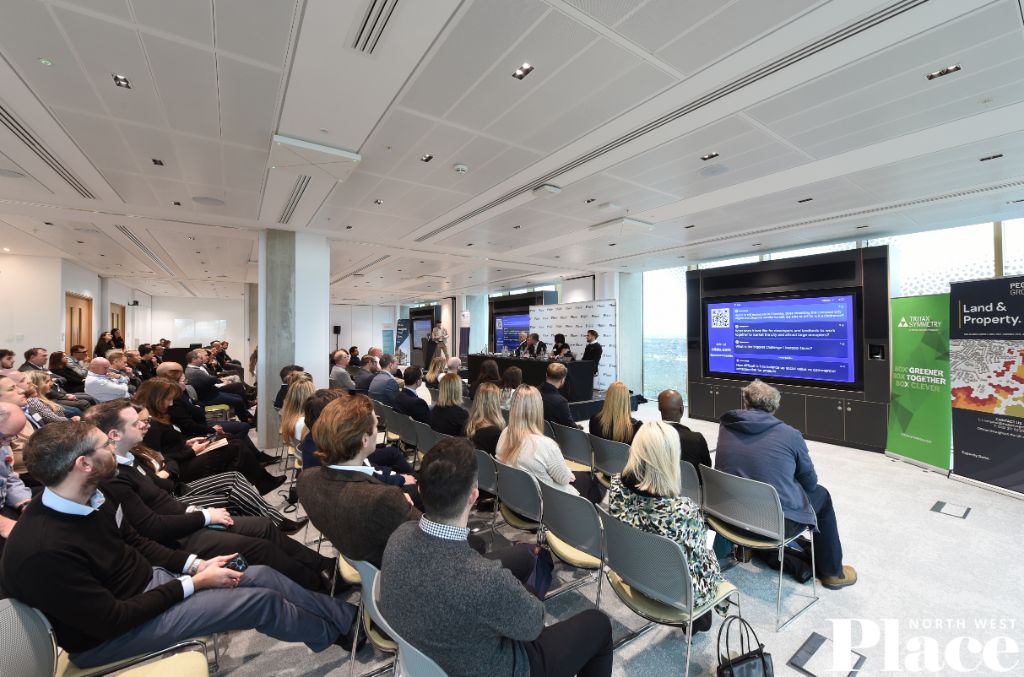
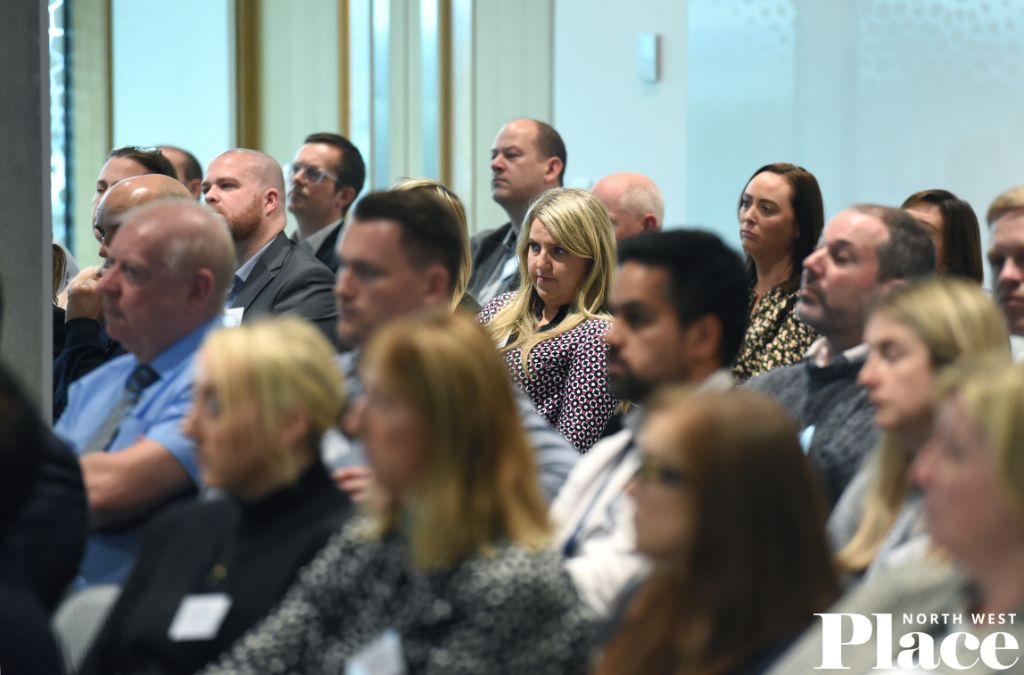
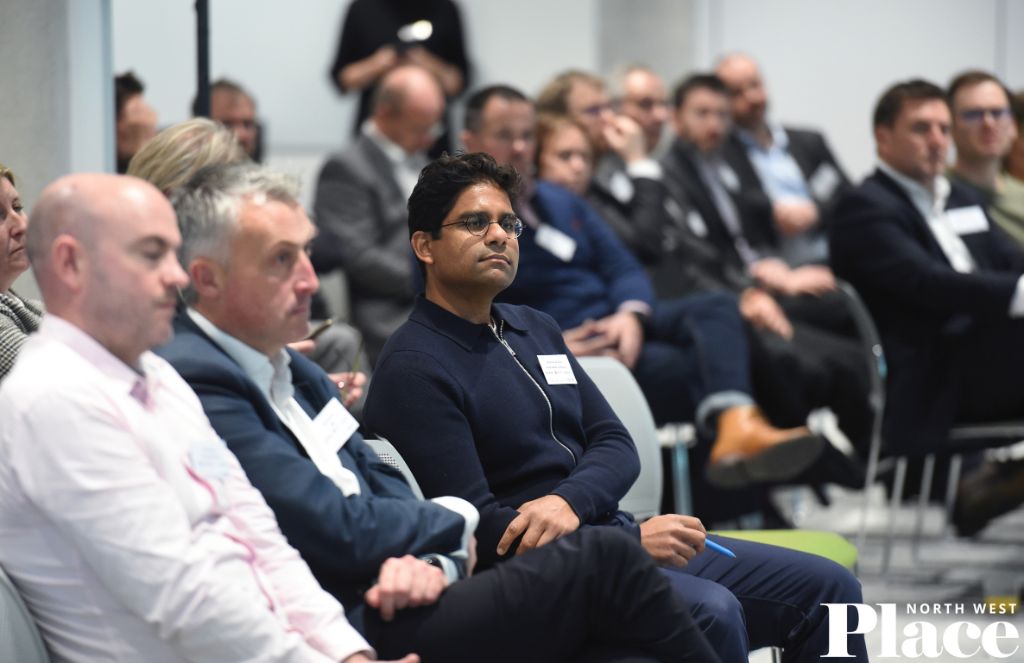
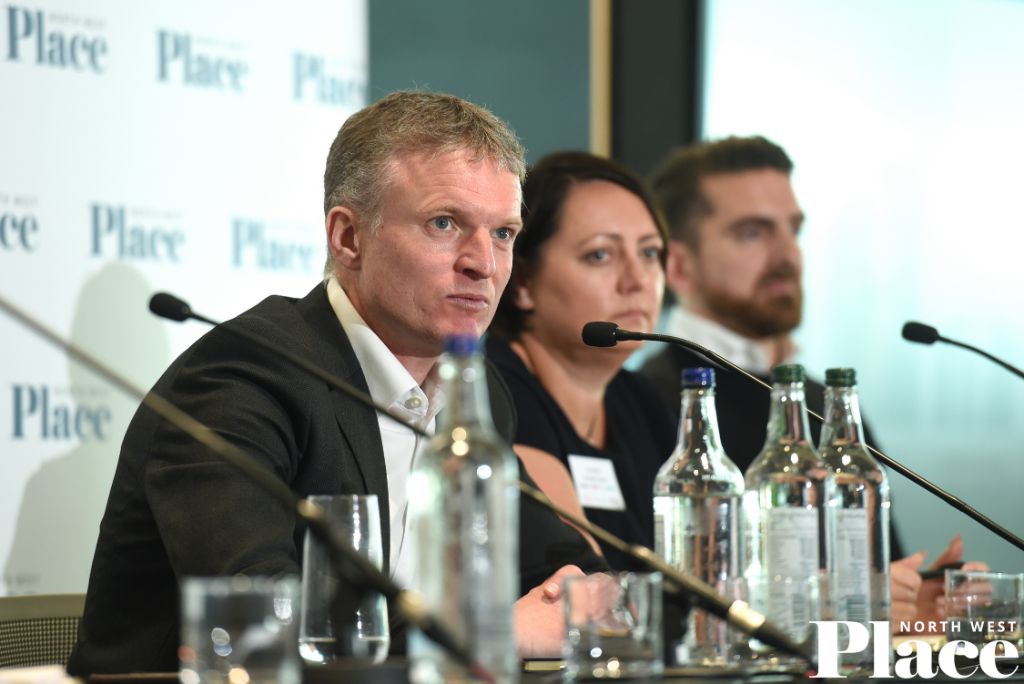
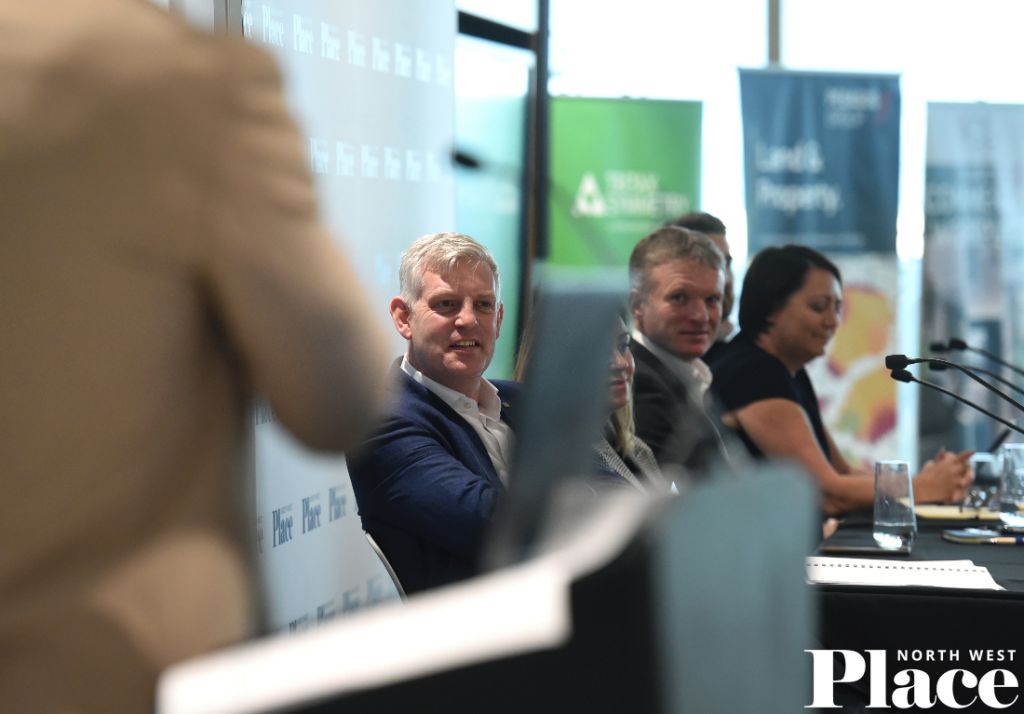

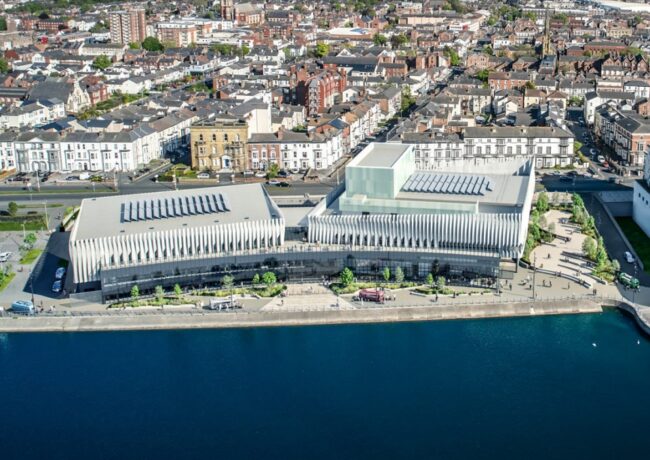
Rotheram says things have improved but those who can speak openly once again highlight the disastrous lack of quality office space, as well as the performance of the planning department in Liverpool, however it`s not all their fault because the planning officers then have to persuade belligerent councillors to accept their recommendations.
The Cruise terminal, Littlewoods studios, Pall Mall offices all need to get on site, also better improvements are needed to Merseyrail in order to give people the confidence to use public transport instead of their car, though ideally a tram network is needed to reach parts of the region not served by trains.
By Anonymous
Liverpool has fantastic potential, and is making some progress see knowledge quarter , Everton sraduin etc but is being held back by slow planning process , lack of ambition see pall mall and a mixture of a extremely simplistic approach to net zero see hostility to cruise liner terminal and airport ,and Government budget cuts . Not sure what Howard Bernstein and the commissioners are doing about this but the need to get a move on
By George
The Merseyside development update must have been a short session. There’s not much to report on other than rehashing the same schemes for the past ten years.
By Anonymous
they always talk about sustainability being at the forefront meanwhile Liverpool has an increased personal car use, very little investment in EV charge points, an ageing building stock which leaks heat, lower development and innovation indexes which means less higher earners and less tax for investment. There should be an innovation hub for sustainability whether its energy, food, transport, ecology, health
By Anonymous
I thought it was a very positive session with a welcome recognition that Liverpool council has to sort itself out, and quick. It also served to remind us that (a) beyond the development/city centre bubble which many of us here occupy, much is happening elsewhere in the city region; and (b) the wider Merseyside economy is in reasonable nick.
By Sceptical